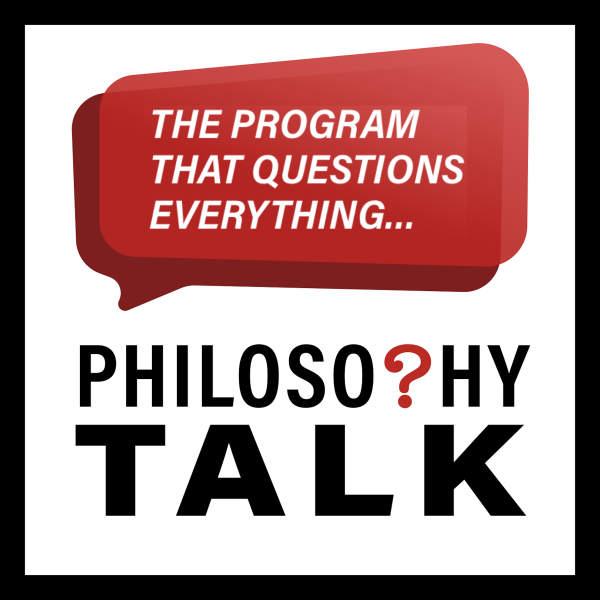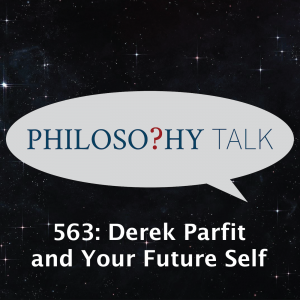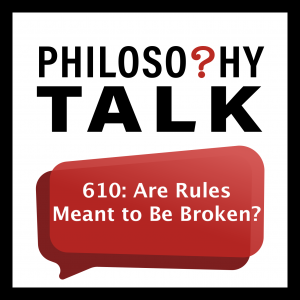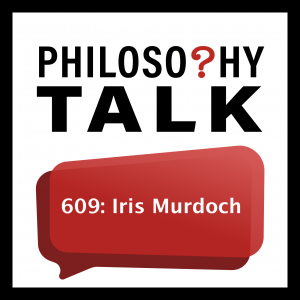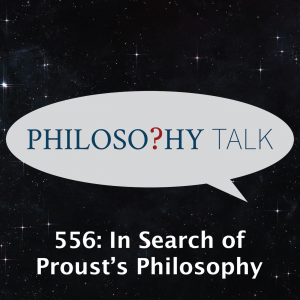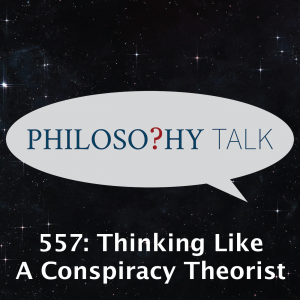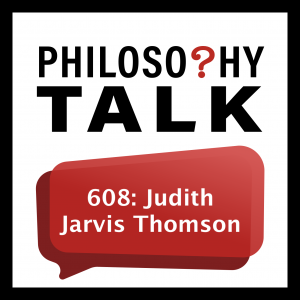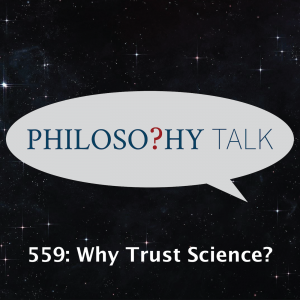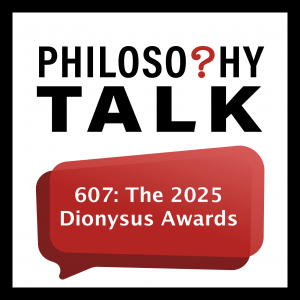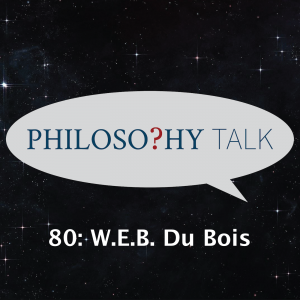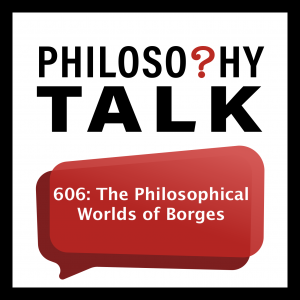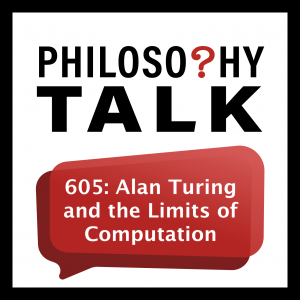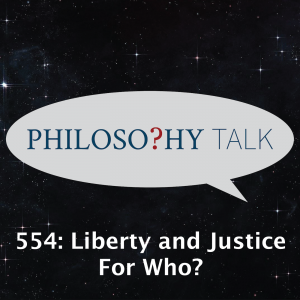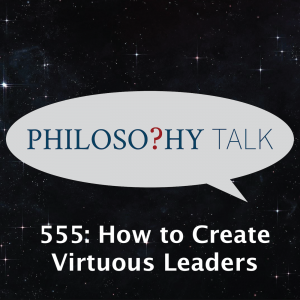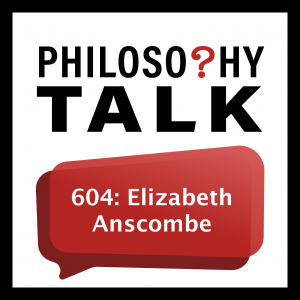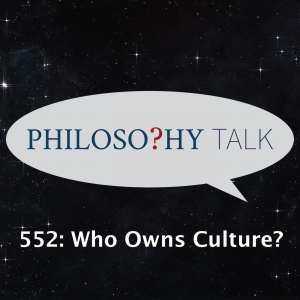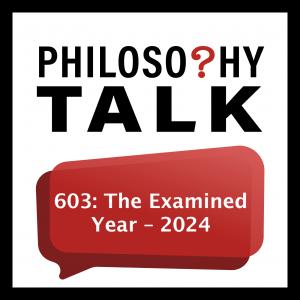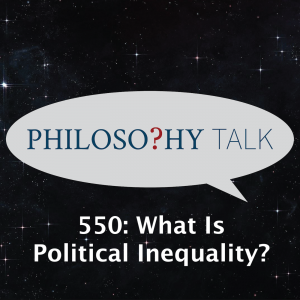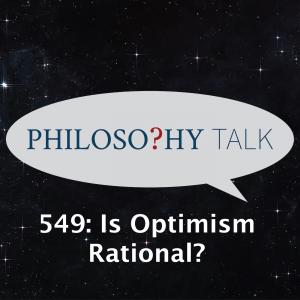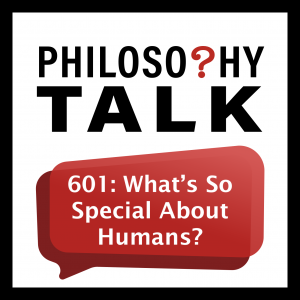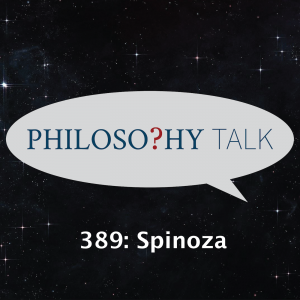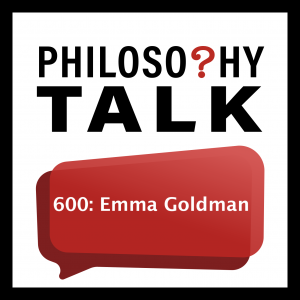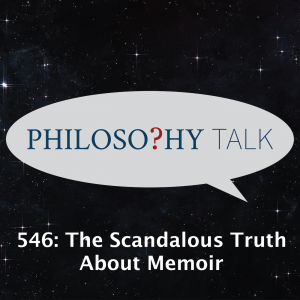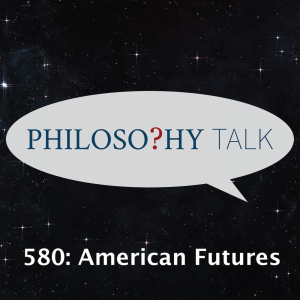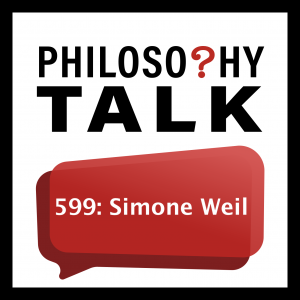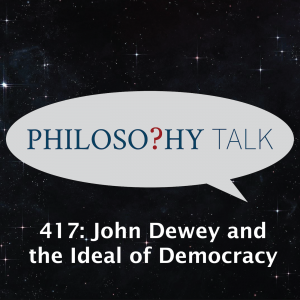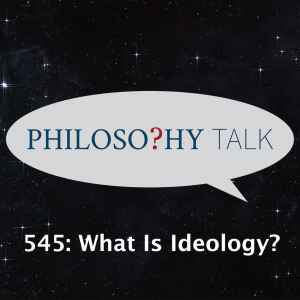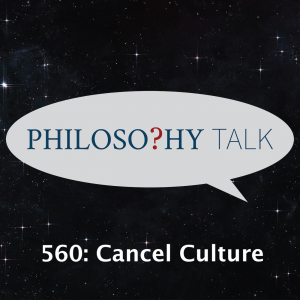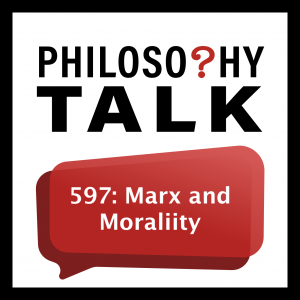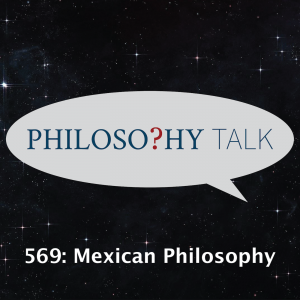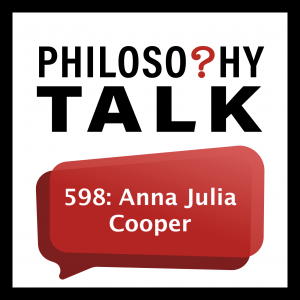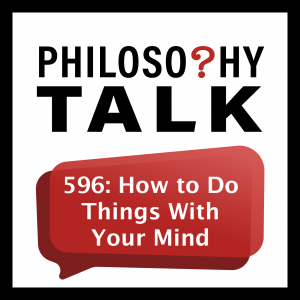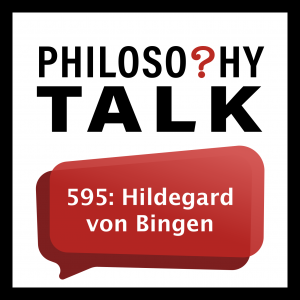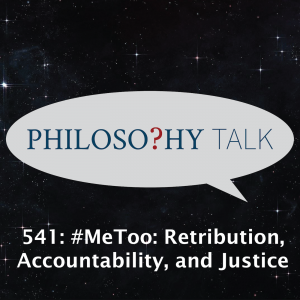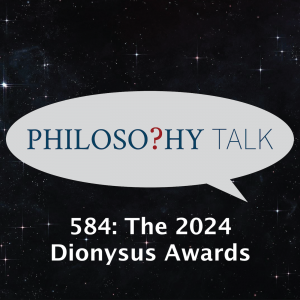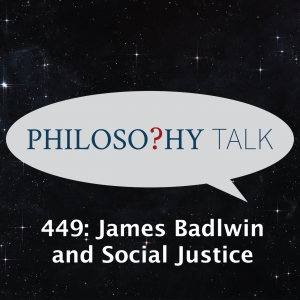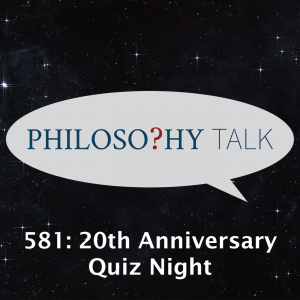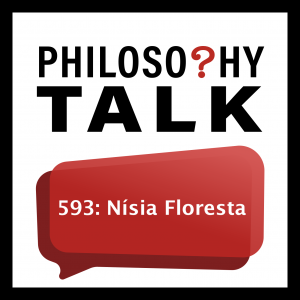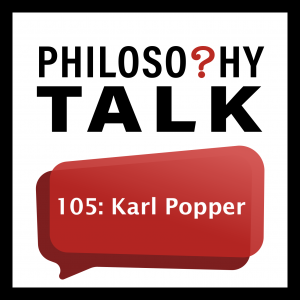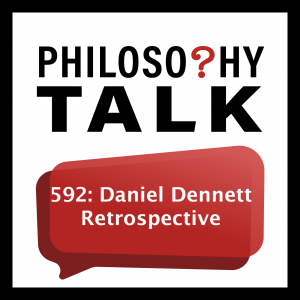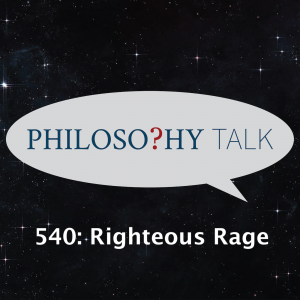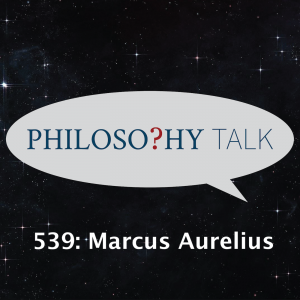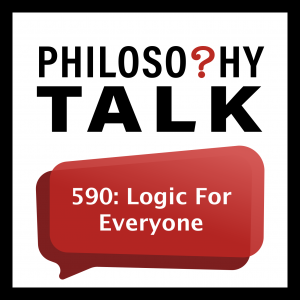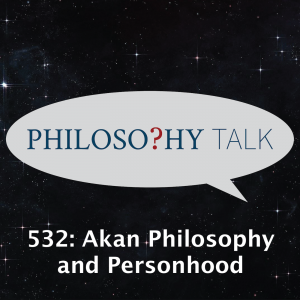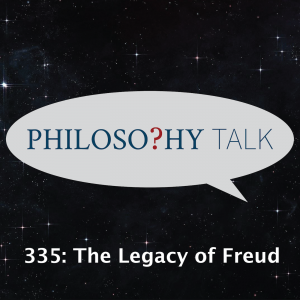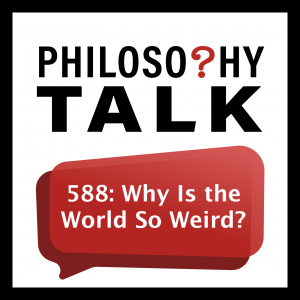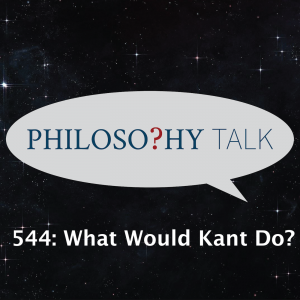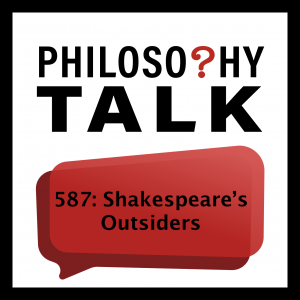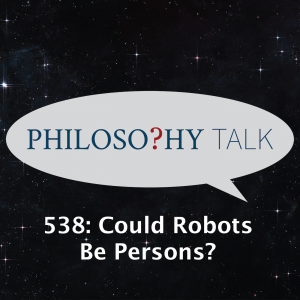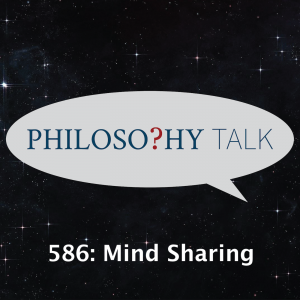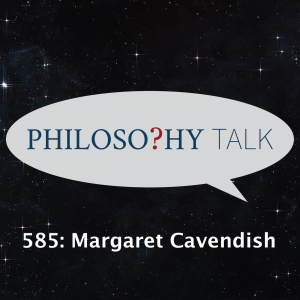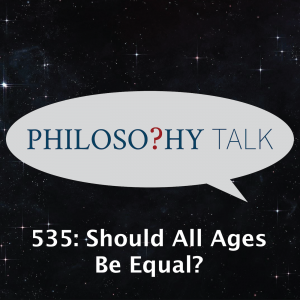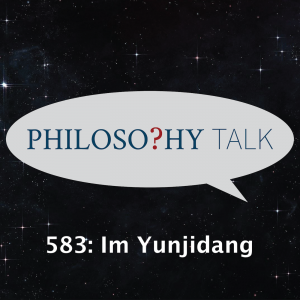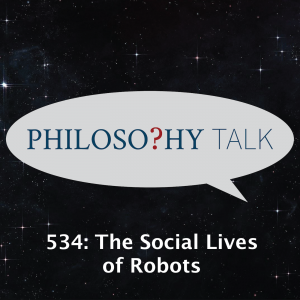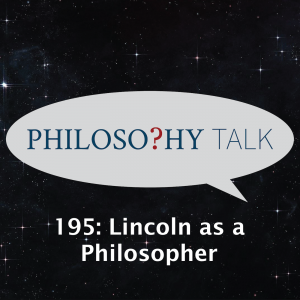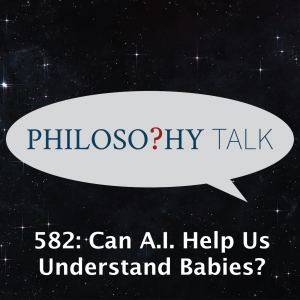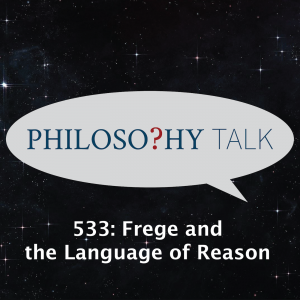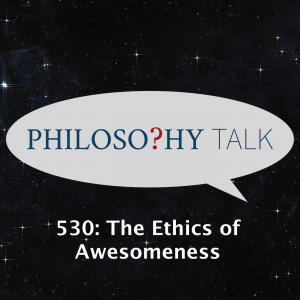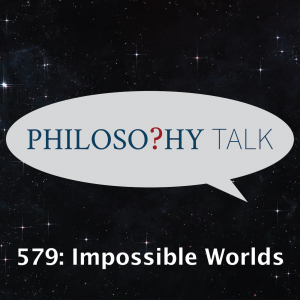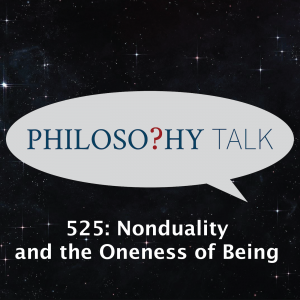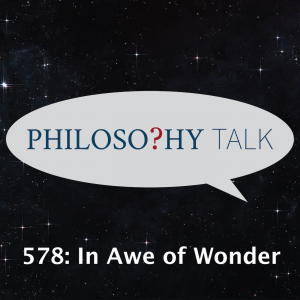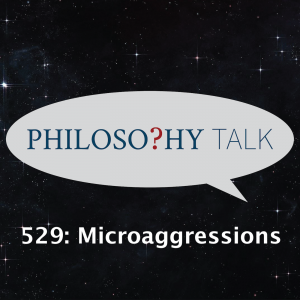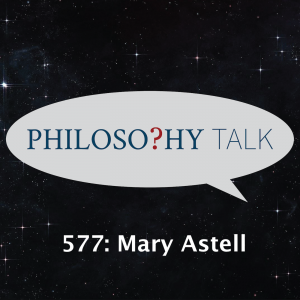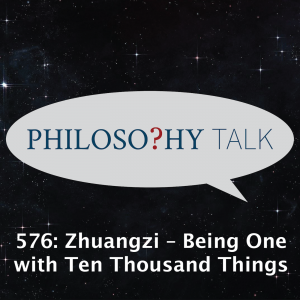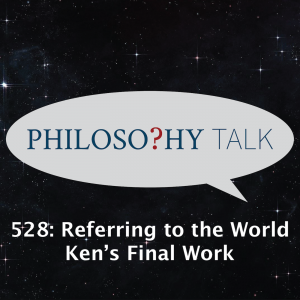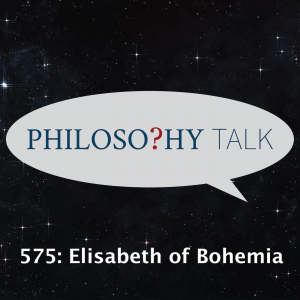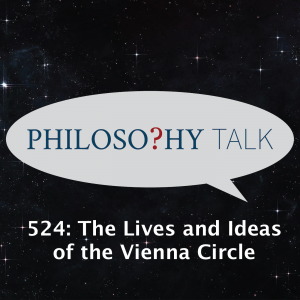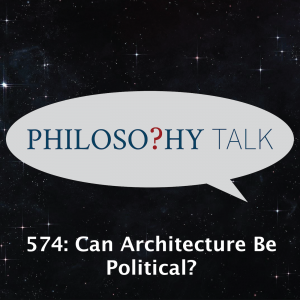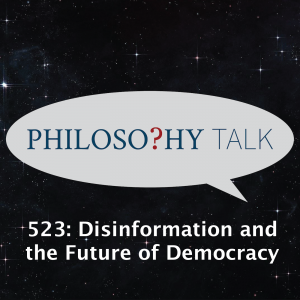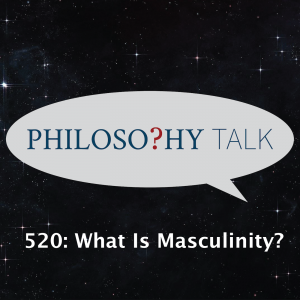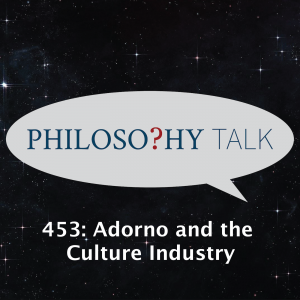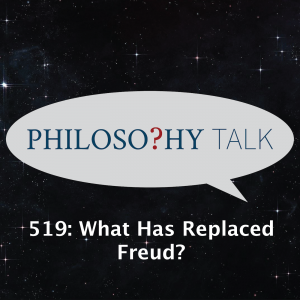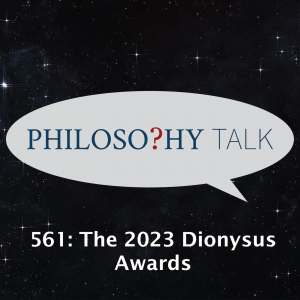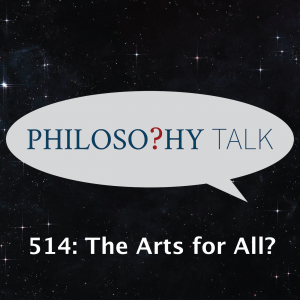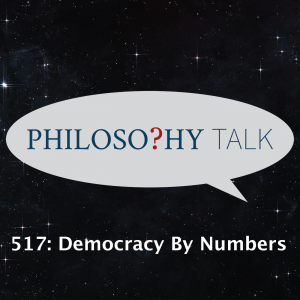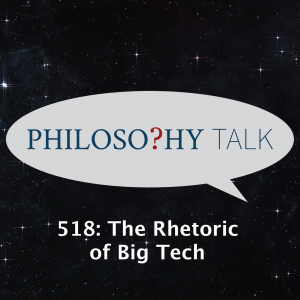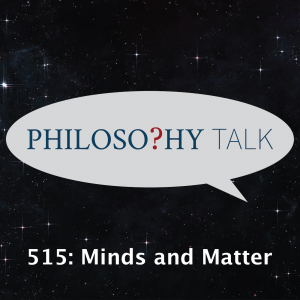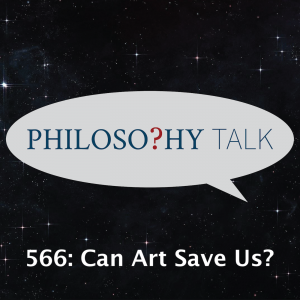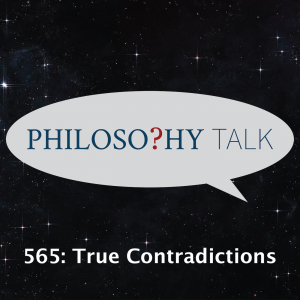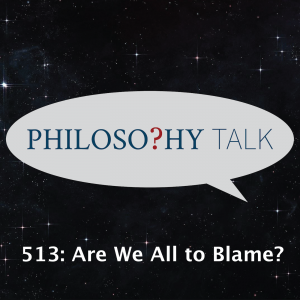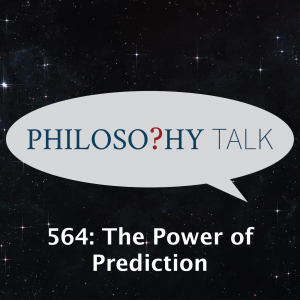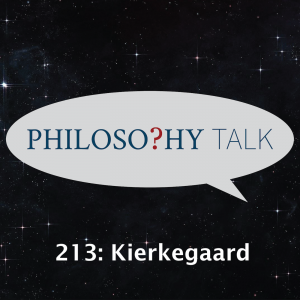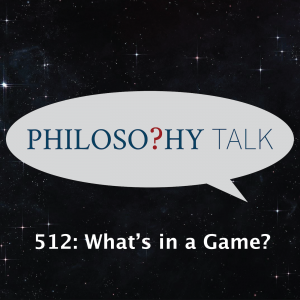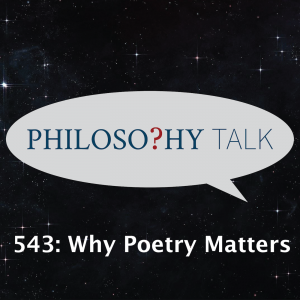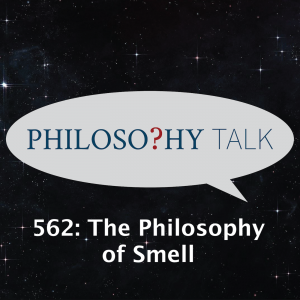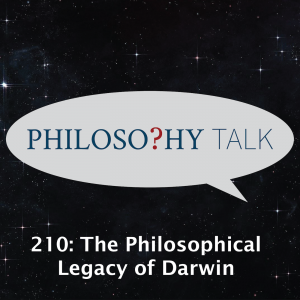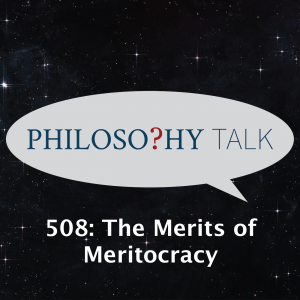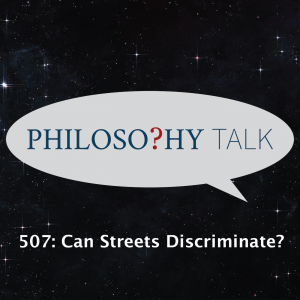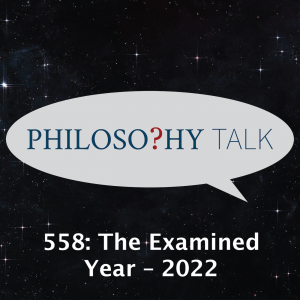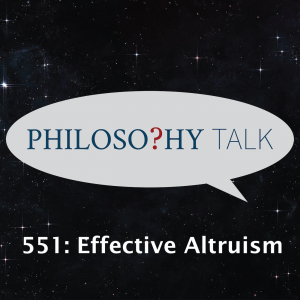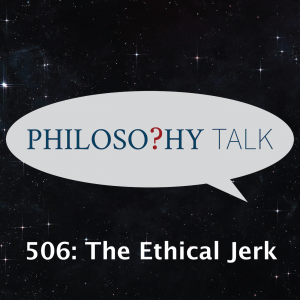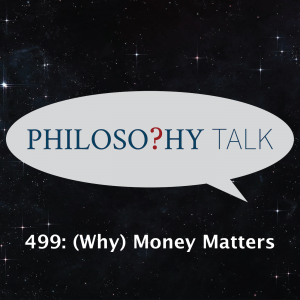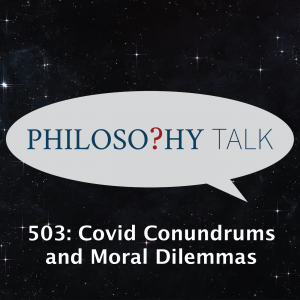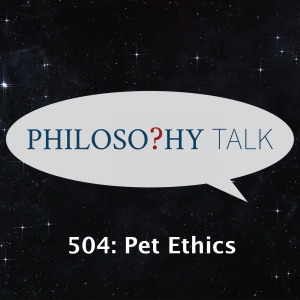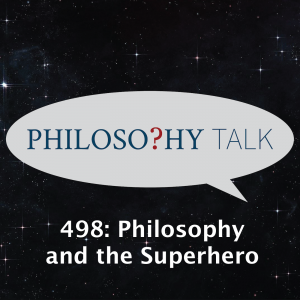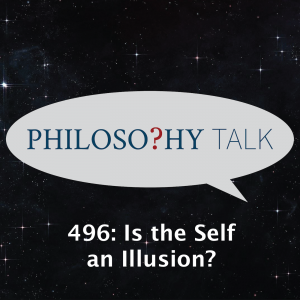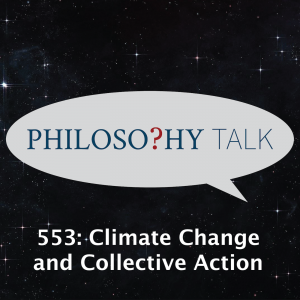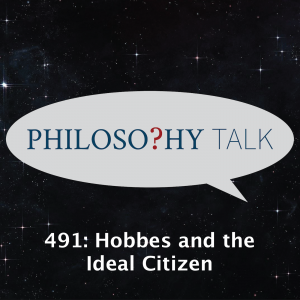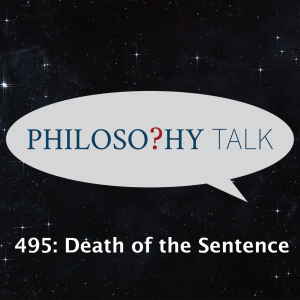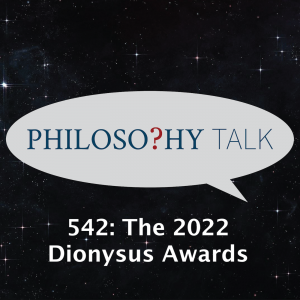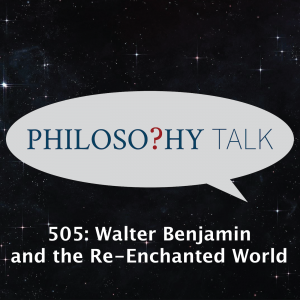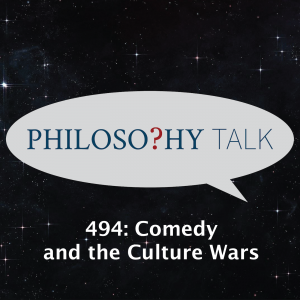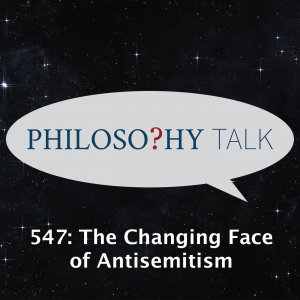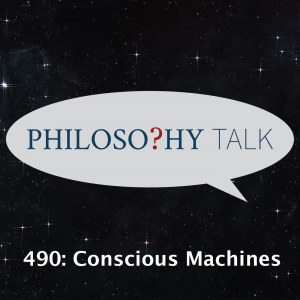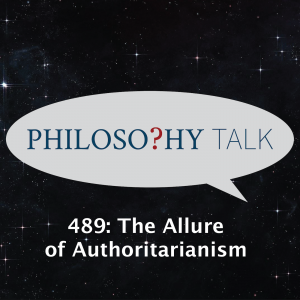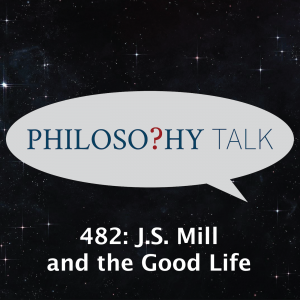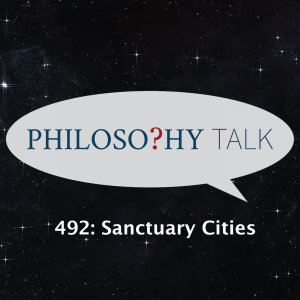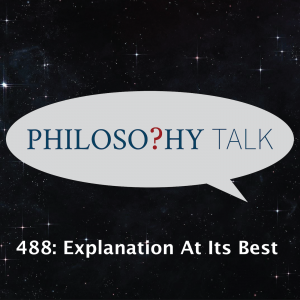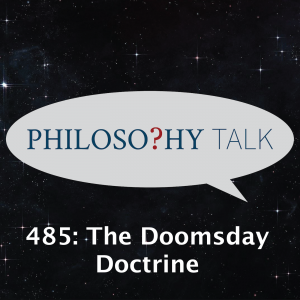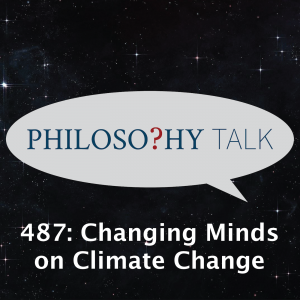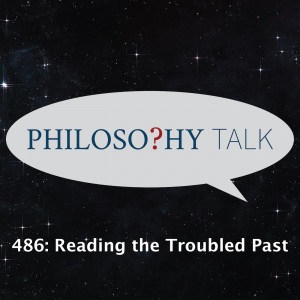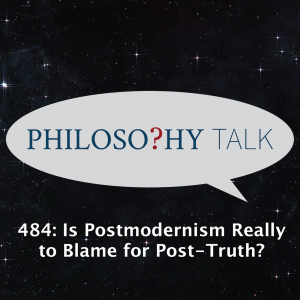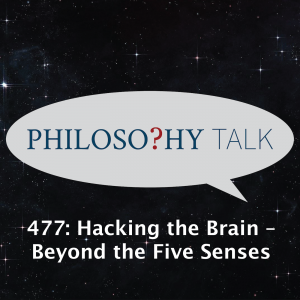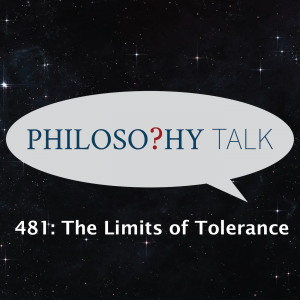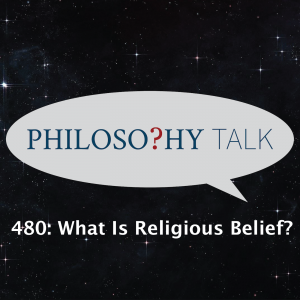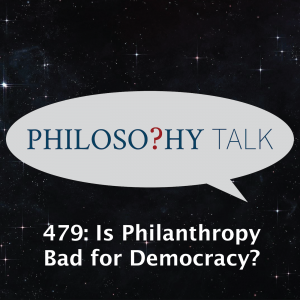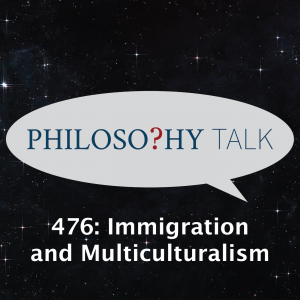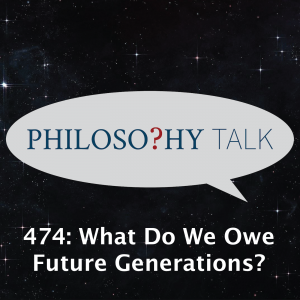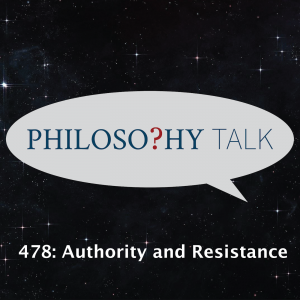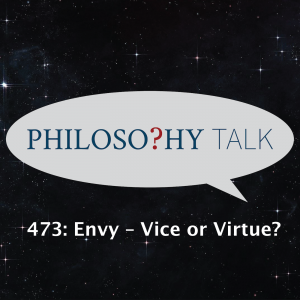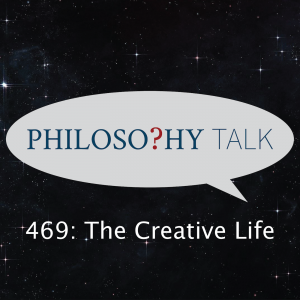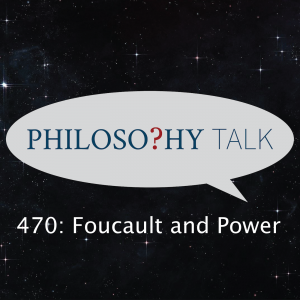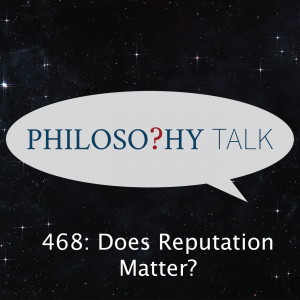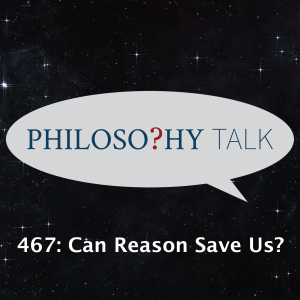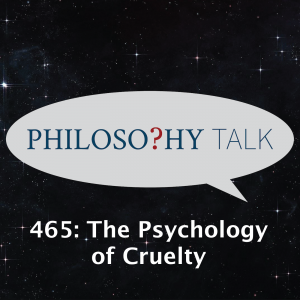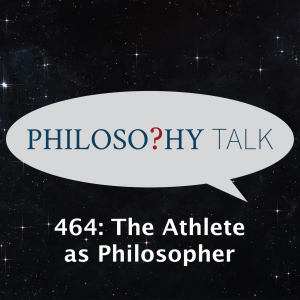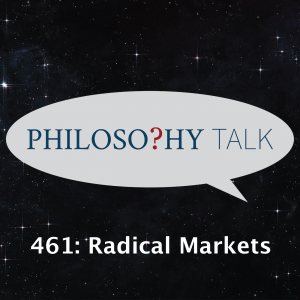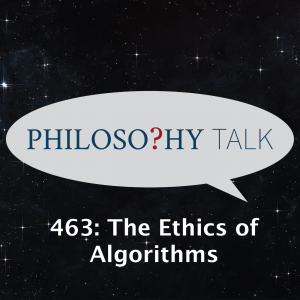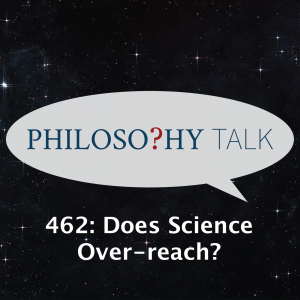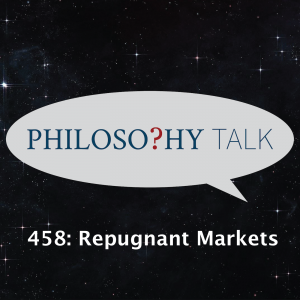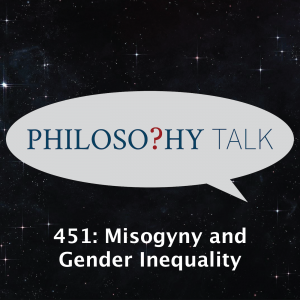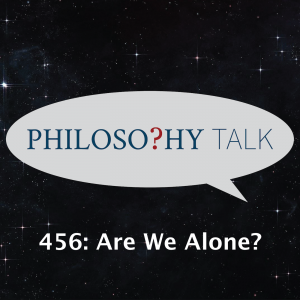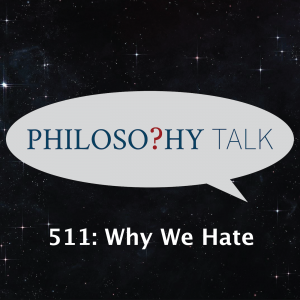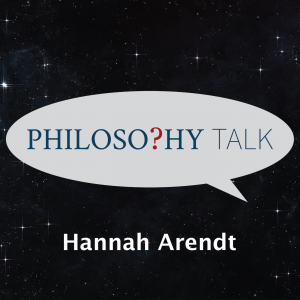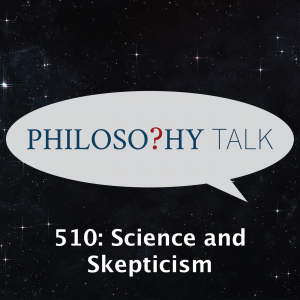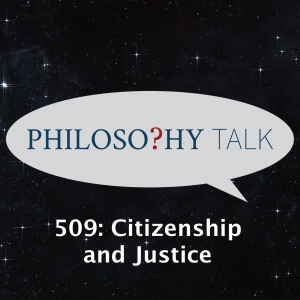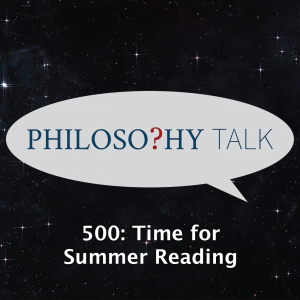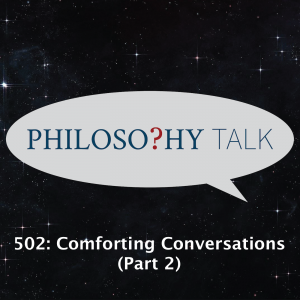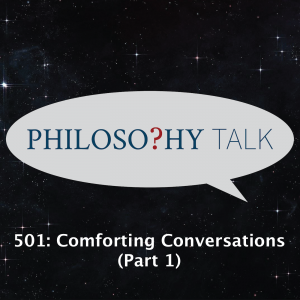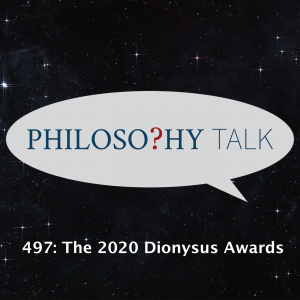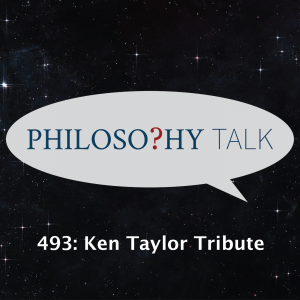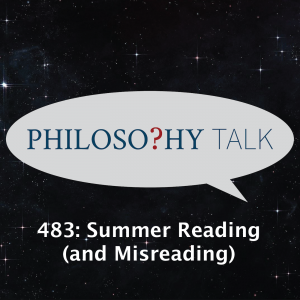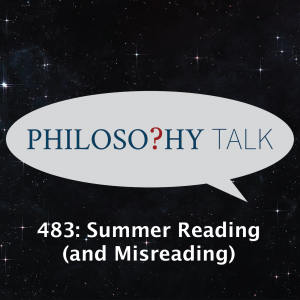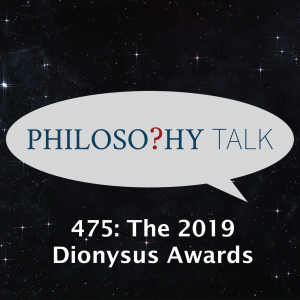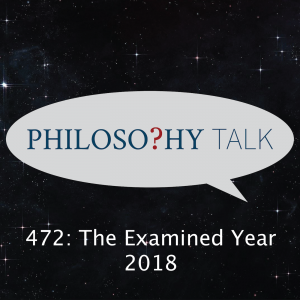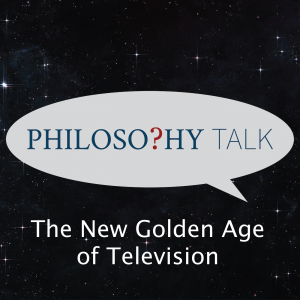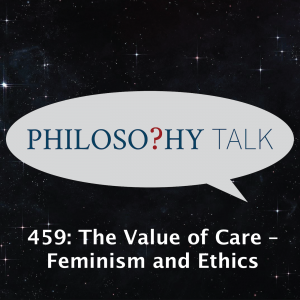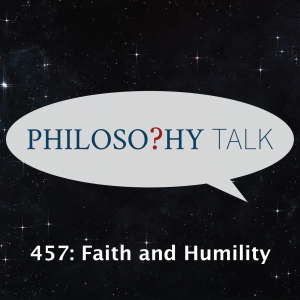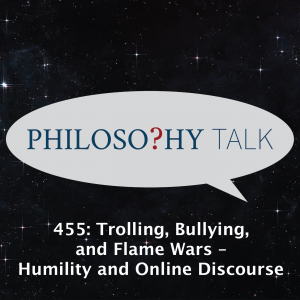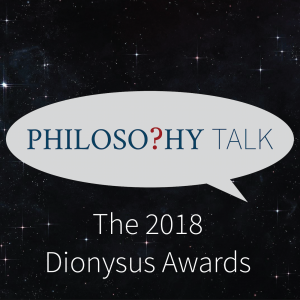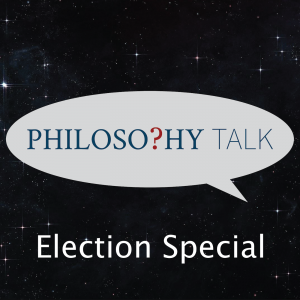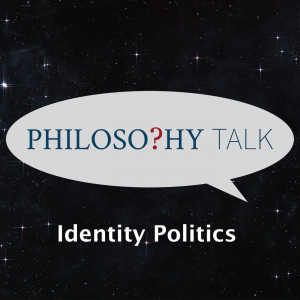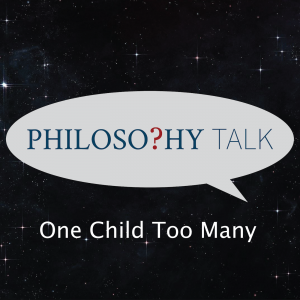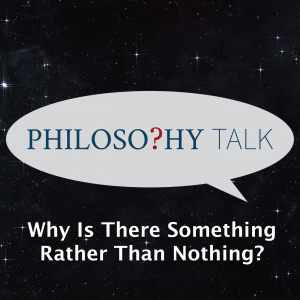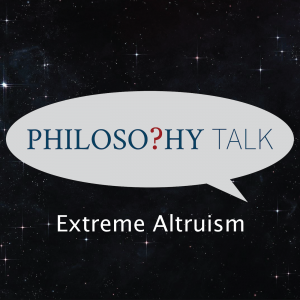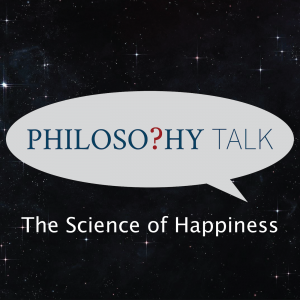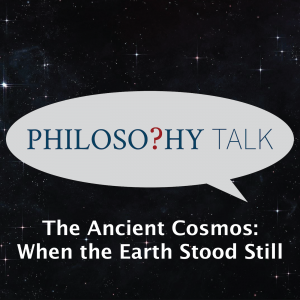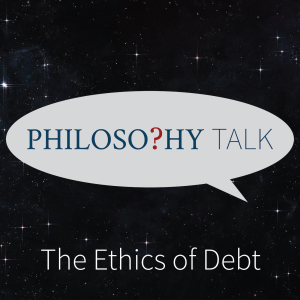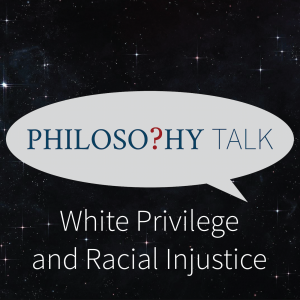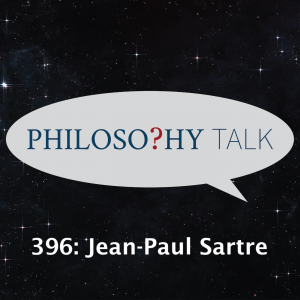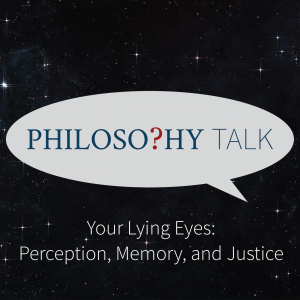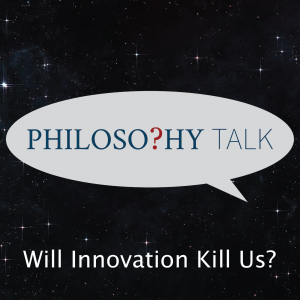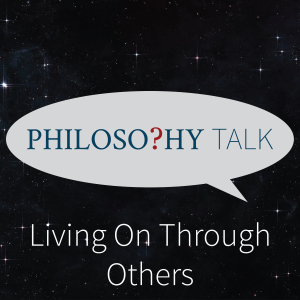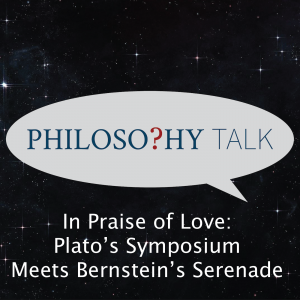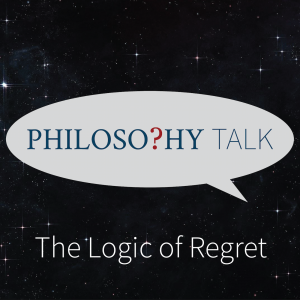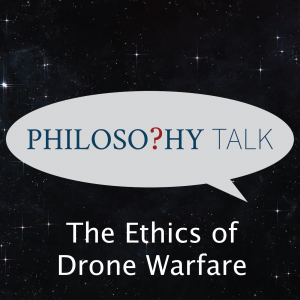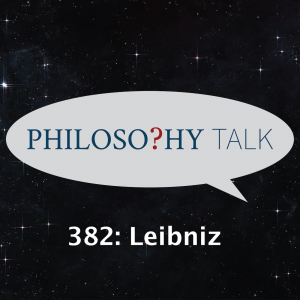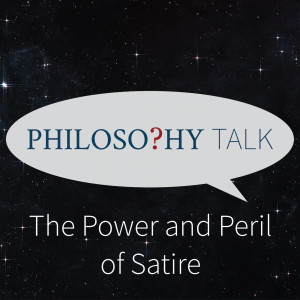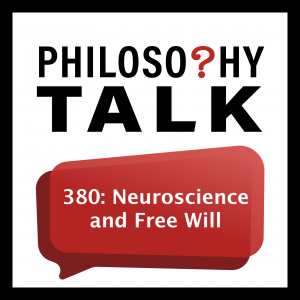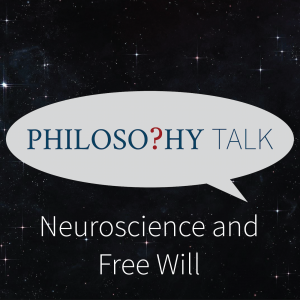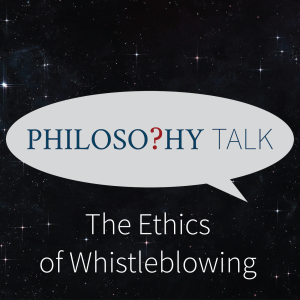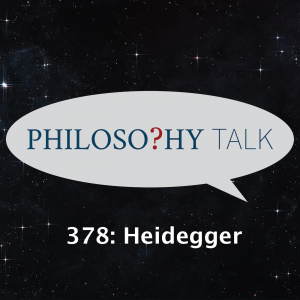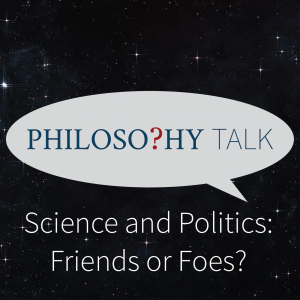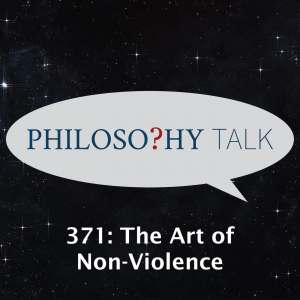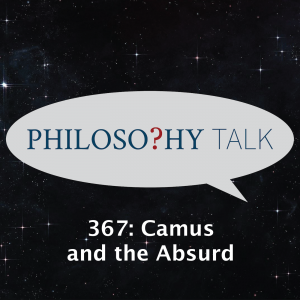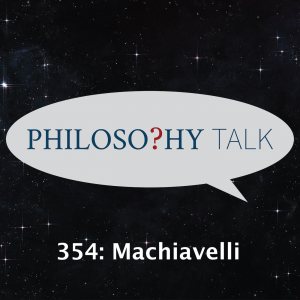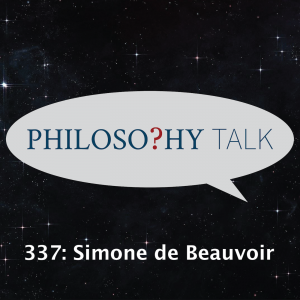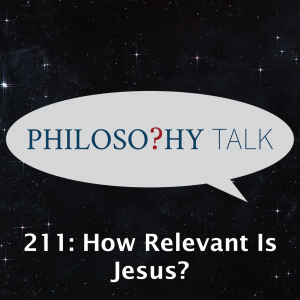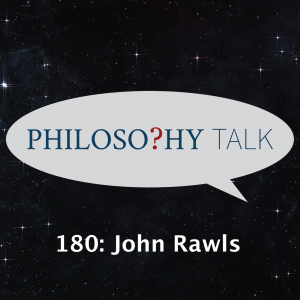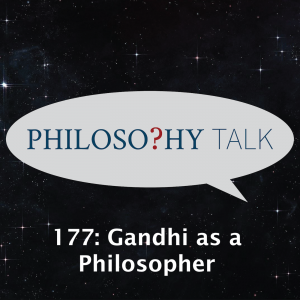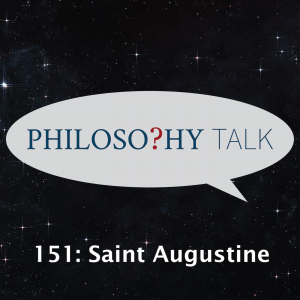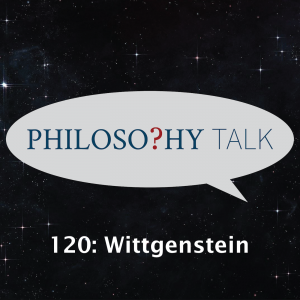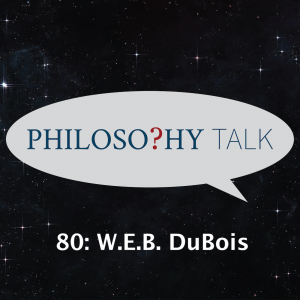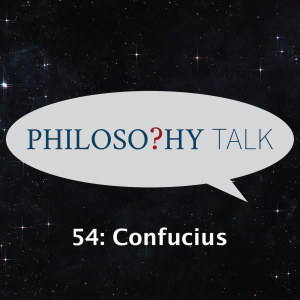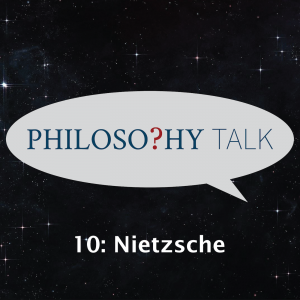Description
Subscriber Podcast Feed.
-
Jump to Podcast File. Download File Description
The works of Derek Parfit (1942-2017) have had a profound influence on how philosophers understand rational decision-making, ethics, and personal identity. At the heart of Parfit's thinking are questions about how you should relate to your future self, and whether you should treat your future self any differently than other future people. So why does Parfit argue that it's wrong to place a special value on your own survival? What would it take to value others in the way that you value yourself? And how might we harness Parfit's insights to make the world a better place? Josh and Ray's future selves welcome back Parfit's former student David Edmonds, author of Parfit: A Philosopher and His Mission to Save Morality.
-
Jump to Podcast File. Download File Description
Rules exist for a reason: they tell us what to expect, they help us coordinate our actions, and they stop us from exploiting one another. But isn't it possible to be too much of a rule follower? Aren't some rules arbitrary, unjust, or just plain inefficient? When should we exercise our judgment to reinterpret the rules, and when should we ignore them altogether? Josh and Ray break all rules with Barry Lam from UC Riverside, author of Fewer Rules, Better People The Case for Discretion.
-
Jump to Podcast File. Download File Description
Iris Murdoch may be best known for her works of fiction, but her philosophical contributions were equally significant. A moral realist influenced by Plato and Simone Weil, she developed theories in virtue ethics and care ethics. So what is the relationship between Murdoch's works of fiction and her philosophical writings? Why did she believe that "nothing in life is of any value except the attempt to be virtuous"? And given that, why did she think human life has no purpose? Josh and Ray explore Murdoch's life and thought with Eva-Maria Düringer from the University of Tübingen, author of Evaluating Emotions.
-
Jump to Podcast File. Download File Description
Marcel Prousts In Search of Lost Time challenges us to think hard about what we can know, who we really are, why memory matters, and how we can find enchantment in a world without God. But some might wonder why we need a 3,000 page novel to do that. Are there things novels can do that philosophy books can not? Does it take a great person to produce great art? And why read Proust in the twenty-first century? Ray and guest-host Blakey Vermeule find a spot on the guestlist for co-host Josh Landy, author of The World According to Proust.
-
Jump to Podcast File. Download File Description
"The moon landing was faked!" "John F. Kennedy, Jr. is still alive!" "Finland does not exist!" Conspiracy theories of all sorts have been gaining traction, thanks partly to the ease with which they spread online. But what makes someone more inclined to believe in vast conspiracies? Are marginalized groups who have been lied to by authorities more likely to be distrustful of official narratives? Or do common cognitive biases make all humans susceptible to this kind of thinking? And what can we do to combat the spread of conspiracy theorizing? Ray and guest-host Blakey Vermeule hatch a plot with Christopher French from the University of London, co-author of Anomalistic Psychology: Exploring Paranormal Belief and Experience.
-
Jump to Podcast File. Download File Description
Judith Jarvis Thomson is best known for arguing that abortion is morally permissible, even granting the fetus the status of person. Her colorful thought experiments illustrate that a right to life does not mean the right to use another person's body to survive. So, what exactly is a right to life and what does it permit or prohibit? Does pregnancy come with certain moral obligations to the fetus? And how can thought experiments, like the Trolley Problem, shed light on these questions? Josh and Ray explore Thomson's life and thought with Elizabeth Harman from Princeton University, author of When to Be a Hero (forthcoming).
-
Jump to Podcast File. Download File Description
According to a recent survey conducted by the Pew Research Center, the number of Americans who trust in science is steadily declining. While politicization is partly to blame, another reason may be that the "truths" of science seem to shift endlessly. So why should we trust science? Is it still reliable, even if it doesn’t seem to settle on a single truth? And what can be done to increase the general public’s confidence in medicine, climate research, or statistics? Josh and Ray test hypotheses with Ann Thresher from Stanford University, co-author of The Tangle of Science Reliability Beyond Method, Rigour, and Objectivity.
-
Jump to Podcast File. Download File Description
Celebrating the most thought-provoking movies of the past year.
-
Jump to Podcast File. Download File Description
Sociologist, historian, philosopher, editor, writer, and activist, W.E.B. DuBois was one of the most influential intellectuals of the twentieth century. The first African-American Ph.D. from Harvard University, DuBois died in Ghana after having renounced his American citizenship. In between he co-founded the NAACP and wrote The Souls of Black Folk (1903) as well as a number of other influential books that had a decisive impact on the development of African-American culture in the twentieth century. John and Ken discuss DuBois' life and thought with Lucius Outlaw from Vanderbilt University, author of On Race and Philosophy.
-
Jump to Podcast File. Download File Description
Argentinian writer Jorge Luís Borges wrote some of the world's most brilliant, mind-bending, and philosophical stories. Drawing on sources from Europe, India, China, and Persia, these stories tackled topics like time, reality, selfhood, and art. Yet Borges also said "I don't think ideas are important." So what can we get out of philosophical stories that don’t try to teach us what to think? And how can Borges help us grapple with our mortality, our confusion, our doubts? Josh and Ray enter the labyrinth with Héctor Hoyos from Stanford University, author of Beyond Bolaño: The Global Latin American Novel.
-
Jump to Podcast File. Download File Description
Alan Turing was a 20th-Century English mathematician and cryptologist who is widely considered to be the father of theoretical computer science. In 1950, he published a definition of a computer that is both universal, general enough to apply to any specific computing architecture, and mathematically rigorous, so that it lets us prove claims about what computers can and can't do. What does Turing's writing teach us about the bounds of reason? Which thoughts are too complicated for a computer to express? Is the human brain just another kind of computer, or can it do things that machines can't? Josh and Ray calculate the answers with Juliet Floyd from Boston University, editor of Philosophical Explorations of the Legacy of Alan Turing.
-
Jump to Podcast File. Download File Description
Many democracies are founded on the ideals of 18th- and 19th-Century British Liberalism: the idea that human beings deserve the right to self-government because we are born free, equal, and capable of rationality. Yet Liberalism was used to justify colonialism, which deprived people around the world of the right to govern themselves. How could a political philosophy that claims to be pro-freedom be used to take freedom away from so many people? Was Liberalism misunderstood, or were its moral flaws built-in from the beginning? How can we design a political philosophy that liberates everyone, not just the citizens of a few wealthy and powerful nations? Josh and Ray talk liberally with Uday Singh Mehta from the CUNY Graduate Center, author of Liberalism and Empire: A Study in Nineteenth-Century British Liberal Thought.
-
Jump to Podcast File. Download File Description
Ancient philosophers like Socrates and Plato believed that an education focused on developing good character could create virtuous leaders who work for the people, not their own benefit. Nowadays, though, it seems too many politicians are power hungry, corrupt, and out of touch. So how do we train our leaders to be more virtuous? Is good character something that can be taught? And what can we learn from the Ancients about how we can each lead an excellent life? Josh and Ray virtuously welcome back Massimo Pigliucci from the City College of New York, author of The Quest for Character: What the Story of Socrates and Alcibiades Teaches Us about Our Search for Good Leaders.
-
Jump to Podcast File. Download File Description
Elizabeth Anscombe made hugely influential contributions to contemporary action theory, moral theory, and philosophy of mind. She also famously protested Truman’s decision to drop the atomic bomb when he was awarded an honorary degree at Oxford. Josh and Ray explore her life and thought with Rachael Wiseman from the University of Liverpool, co-author of Metaphysical Animals: How Four Women Brought Philosophy Back to Life.
-
Jump to Podcast File. Download File Description
Fashion designers, musicians, and Halloween costume wearers have been accused of engaging in cultural appropriation. In some cases, the alleged appropriator is quick to apologize; in others, they defend their actions as merely an attempt to appreciate a different culture. So why do we find cultural appropriation morally objectionable? Is there a clear-cut way to tell whether we are exploring or exploiting? And can we come up with principles that allow artists to be inspired while also allowing communities to hold on to what is theirs? Josh and Ray mix it up with Dominic Lopes from the University of British Columbia, author of Aesthetic Injustice (forthcoming).
-
Jump to Podcast File. Download File Description
Josh and Ray talk to philosophers and more about the events and ideas that shaped the last twelve months:
• The Year in Philosophy with Justin Weinberg, creator and editor of the Daily Nous
• The Year in Unjust Deserts with Elie Honig, author of Untouchable: How Powerful People Get Away with It
• The Year in Electoral Futility with Alex Guerrero, author Lottocracy: Democracy Without Elections -
Jump to Podcast File. Download File Description
We all know our society is economically unequal: some people have more money and resources than others. But equality isn't just a matter of who has which things. Political equality involves respect and participation in the political process but those aren't resources that can be divided up like pie. So what is political equality in the first place? How do we know when we've achieved it? And can we prevent politics from being an elite activity concentrated among the educated and wealthy? Josh and Ray push for equality with Margaret Levi, Director of the Center for Advanced Study in the Behavioral Sciences at Stanford University and co-author of A Moral Political Economy: Present, Past, and Future.
-
Jump to Podcast File. Download File Description
The Popol Vuh, written in 1702, was based on a Mayan oral tradition encompassing creation myths, history, and cosmology. These stories were written in a time of crisis: European colonialism had decimated the Mayan population and destroyed much of their cultural knowledge. How do stories help a society survive and thrive? Can they console us in times of crisis? How much of a culture can historians save in times of devastation? Josh and Ray rewrite history with Edgar Garcia from the University of Chicago, author of Emergency: Reading the Popol Vuh in a Time of Crisis.
-
Jump to Podcast File. Download File Description
When the odds are against you, believing in yourself can be a source of strength but it seems to require a cavalier disregard for the evidence. So is optimism a rational way to improve your life, or an irrational kind of wishful thinking? Will hope now just lead to disappointment later? Where should we set our expectations, and where should we teach our children to set theirs? Josh and Ray tackle their hopes and fears with Jennifer Morton from the University of Pennsylvania, author of Moving Up Without Losing Your Way: The Ethical Costs of Upward Mobility.
-
Jump to Podcast File. Download File Description
Human beings share the planet with many different organisms with vastly diverse ways of life. We like to think we're a higher form of intelligence. But are we really that unique? How different are we as a species when it comes to language, thought, and culture? Where does our specifically human form of consciousness come from? And if other animals are so similar to us, should we stop eating them? The Philosophers walk the Earth with Peter Godfrey-Smith from the University of Sydney, author of Living on Earth Forests, Corals, Consciousness, and the Making of the World.
-
Jump to Podcast File. Download File Description
Baruch Spinoza was a 17th century Dutch philosopher who laid the foundations for the Enlightenment. He made the controversial claim that there is only one substance in the universe, which led him to the pantheistic belief in an abstract, impersonal God. What effect did Spinoza have on Enlightenment thinkers? What are the philosophical – and religious – consequences of believing that there is only one substance in the universe? And why do scientists today still take him seriously? John and Ken welcome back Rebecca Goldstein, author of Betraying Spinoza: The Renegade Jew Who Gave Us Modernity.
-
Jump to Podcast File. Download File Description
Activist and anarchist philosopher Emma Goldman fought for human liberation in every realm of life. While she opposed the women's suffrage movement, she was a staunch advocate for women’s rights. So why did she think the right to vote was so unimportant? What did she think was required to achieve her anarchist goals? And how ahead of her time was she on labor, prison abolition, and sexual liberation? Josh and Ray explore her life and thought with Candace Falk, founding director of the Emma Goldman Papers research project at UC Berkeley.
-
Jump to Podcast File. Download File Description
A memoir is a personal narrative written about a pivotal time in the authors life. While the story is told from a particular perspective, the events recounted are supposed to be fact, not fiction. But what exactly counts as truth in memoir? Is the distinction between literal truth and emotional truth just a way of shirking responsibility for fabricating falsehoods? What other ethical responsibilities does the memoirist have for example, when it comes to exposing other peoples secrets? And why should anyone read or write memoirs in the first place? Josh and Ray take a trip down memory lane with Helena de Bres from Wellesley College, author of Artful Truths: The Philosophy of Memoir.
-
Jump to Podcast File. Download File Description
When Philosophy Talk co-founder Ken Taylor passed away in 2019, he was working on a manuscript titled Farewell to the Republic We Once Dreamed of. Was Ken right to think the American experiment is on the verge of collapse? Are we heading for authoritarian rule, a national divorce, or even a civil war? Or could better days be on the horizon? In Ken’s honor, Josh and Ray devote their 2023 end-of-year special to probing the future of the American republic with Barbara Walter from UC San Diego, Tamsin Shaw from New York University, and Rob Reich from Stanford University.
-
Jump to Podcast File. Download File Description
French philosopher and mystic Simone Weil was also an activist whose goal was to elevate the lower classes. But she was opposed to the kind of revolution where the oppressed overthrow their oppressors. So how did she think we could achieve peace and justice? Is it enough to pay the right kind of attention to each other's suffering? And how does this connect to her conversion to a mystical form of Christianity? Josh and Ray attend to the life and thought with Rebecca Rozelle-Stone from the University of North Dakota, author of Simone Weil: A Very Short Introduction.
-
Jump to Podcast File. Download File Description
John Dewey is regarded by some as the American philosopher. In the first half of the 20th century, he stood as the most prominent public intellectual whose influence reached into intellectual movements in China, Japan, and India. Although we hear less of Dewey nowadays, his pragmatic political philosophy has influenced the likes of Richard Rorty and other political thinkers. What were the basic ideas in his philosophy of democracy? Does America have a public sphere? If not, how might we recreate a public necessary for democracy? And does the rise of the internet and social media fit into Dewey's ideal democracy? John and Ken idealize a conversation with Melvin Rogers from UCLA, author of The Undiscovered Dewey: Religion, Morality, and the Ethos of Democracy.
-
Jump to Podcast File. Download File Description
Political polarization seems to be deepening, both in the U.S. and around the globe. Some believe that the rise of ideology is to blame for growing polarization. But can increased polarization really be attributed to ideology? What is exactly is ideology, and how is it different from dogma? Is ideology a kind of political or philosophical thinking? And how might our understanding of ideology affect how we practice politics? Josh and Ray ideate with Marius Ostrowski from the Centre for Advanced Studies, author of Ideology (Key Concepts).
-
Jump to Podcast File. Download File Description
Revoking support or a platform from someone who is perceived to have behaved badly has recently been dubbed "cancel culture." Many complain that this pervasive practice promotes mob mentality and stifles free speech. But is "cancel culture" a real phenomenon, or has it become an overused and meaningless concept? Is publicly censuring others for something they've done or said itself a form of free speech? And is there a moral difference between "canceling" public figures and "canceling" ordinary folks who get caught on tape behaving badly? Josh and Ray give a platform to Adrian Daub from Stanford University, author of Cancel Culture Transfer.
-
Jump to Podcast File. Download File Description
Karl Marx famously attempted to explain our social, political, and economic systems in terms of class conflict. While he never explicitly states that capitalism is unjust, some scholars suggest that there is an implicit moral critique of it in his work. So, does Marx reject capitalism for its moral failures, or is his opposition to it purely socioeconomic? Can we get an account of gender and racial justice from Marx? And did he try, and perhaps fail, to abandon philosophy entirely? Josh and Ray share the means of production with Vanessa Wills from George Washington University, author of Marx’s Ethical Vision.
-
Jump to Podcast File. Download File Description
From early feminist Sor Juana Inés de la Cruz to existentialist Emilio Uranga, from Indigenous thought to theorists of aesthetic utopia, Mexican philosophy is full of fascinating figures with brilliant insights. What can we learn from them today about belief, desire, freedom, morality, and education? And do Mexican philosophers speak with one voice or in a complicated harmony, stretching across the centuries? Josh and Ray travel through space and time with Manuel Vargas from UC San Diego, author of Building Better Beings: A Theory of Moral Responsibility.
-
Jump to Podcast File. Download File Description
Born into slavery in the nineteenth century, Anna Julia Cooper received a classical education, attended the Sorbonne, and became the fourth African American in history to be awarded a PhD. Her first book, A Voice from the South, offered one of the first articulations of how Black women are impacted by race, gender, and socioeconomic class. She believed that uplifting Black women through higher education would improve life for all Black people. Josh and Ray explore her life and thought with Kathryn Sophia Belle, author of Beauvoir and Belle: A Black Feminist Critique of The Second Sex.
-
Jump to Podcast File. Download File Description
We all engage in mental actions of various kinds, whether it’s planning the coming week, trying to remember the lyrics of a song, or imagining what we’d look like with a different haircut. These thought processes have significance for us and help us direct our other actions. But are we really in control of trains of thoughts or do they just pop into consciousness? Does it make sense to criticize others for what goes on inside their heads? And is there anything we can do to improve the quality of our thinking? Josh and guest-host Blakey Vermeule do things with the mind of their Stanford colleague Antonia Peacocke, author of Mental Means (forthcoming).
-
Jump to Podcast File. Download File Description
Looking for some deep dives into pop culture this summer? Josh and Ray talk to Sandra Laugier from the University of Paris 1 Panthéon-Sorbonne, author of TV-Philosophy in Action: The Ethics and Politics of TV Series, and Nathaniel Goldberg from Washington & Lee University, co-author of Revising Reality: How Sequels, Remakes, Retcons, and Rejects Explain the World. And they get recommendations for philosophical science fiction from Sara Uckelman of Durham University, philosopher of language by day and writer of speculative fiction by night.
-
Jump to Podcast File. Download File Description
Hildegard von Bingen was a 12th century mystic, polymath, and composer whose work spanned visionary theology, philosophy, cosmology, medicine, botany, and music. Her extraordinary intellectual accomplishments belie her humble claim to be "just a woman". Was her humility justified in the face of the divine, internalizing misogynistic stereotypes, or a strategic decision to get her voice heard? What can mystical experience teach us about the world? And how can we understand ourselves in relation to the divine? Josh and Ray explore her life and thought with Jennifer Bain from Dalhousie University, editor of The Cambridge Companion to Hildegard of Bingen.
-
Jump to Podcast File. Download File Description
The #MeToo movement exposed how pervasive sexual harassment and abuse are, and how rare it is for perpetrators to be held accountable. Although some recent high profile cases have resulted in convictions, more often punishment is meted out by public shaming. So why is it so difficult to hold sexual abusers legally responsible for their actions? Is social retribution a way to achieve some form of justice in lieu of criminal proceedings? And how do we move forward to find love and acceptance when there are still such great asymmetries of power? Josh and Ray tackle the issues with Janine Benedet from the UBC School of Law.
-
Jump to Podcast File. Download File Description
Beat the Oscars hype as Josh and guest co-host Jeremy Sabol present the annual Dionysus Awards for the most thought-provoking movies of 2023, including: Best Film about Social Justice that Wonders What Makes a Good Film about Social Justice; Most Disturbing Exploration of a Female Criminal Who Thinks She May Be Innocent; and Most Moving Film (or TV show!) about Difficult Choices.
-
Jump to Podcast File. Download File Description
Sometimes, we struggle to tell the truth -- especially when it's the truth about ourselves. Why did James Baldwin, a prominent Civil Rights-era intellectual and novelist, believe that telling the truth about ourselves is not only difficult but can also be dangerous? How can truth deeply unsettle our assumptions about ourselves and our relations to others? And why did Baldwin think that this abstract concept of truth could play a concrete role in social justice? The Philosophers seek their own truth with Christopher Freeburg from the University of Illinois, author of Black Aesthetics and the Interior Life.
-
Jump to Podcast File. Download File Description
People often speak on behalf of others, like the concerned citizen who stands up for their neighbors at a city council meeting, or the activist who defends the rights of an oppressed group. Some of these spokespeople are elected, and some volunteer, but others simply get drafted into the role. What gives someone the right to speak on behalf of others? What responsibilities do they take on when they do? And how should the rest of us respond to what they say? Josh and Ray speak for themselves with their Stanford colleague Wendy Salkin, author of Speaking for Others: The Ethics of Informal Political Representation.
-
Jump to Podcast File. Download File Description
Philosophy Talk made its radio debut on August 20, 2003 with a live pilot on KALW San Francisco and weekly broadcasts beginning in January 2004. To celebrate two decades on the air, in November 2023 we held our first-ever Quiz Night. Longtime listeners and first-time fans filled KALW's popup space in downtown San Francisco as Director of Research Laura Maguire ran eight teams through the gauntlet of a philosophical pub quiz. In this special 20th anniversary episode, Josh and Ray (who participated in the quiz as regular contestants) revisit the drama and intellectual derring-do from that evening with their guest quiz-taker, host emeritus John Perry.
-
Jump to Podcast File. Download File Description
Nisia Floresta was a 19th-century writer and translator known as "the Brazilian Mary Wollstonecraft." She published the first book on women’s rights in South America, when Brazil was gaining independence from Portugal and a new post-colonial nation was being built. She also argued for the rights of the enslaved and indigenous Brazilians, who were marginalized and exploited in this new nation. Josh and Ray explore her life and thought with Nastassja Pugliese from the Federal University of Rio de Janeiro, author of Nisia Floresta (Elements on Women in the History of Philosophy).
-
Jump to Podcast File. Download File Description
Karl Popper is a landmark figure in the philosophy of science. His notion of "falsifiability" endures to this day and even appears in arguments about creation versus evolution. But what does it mean for a theory to be falsifiable? And where does the idea stand in contemporary philosophy of science? John and Ken test a few ideas on Popper and falsifiability with their Stanford colleague Denis Phillips, author of The Social Scientist's Bestiary: A Guide to Fabled Threats to, and Defences of, Naturalistic Social Science.
-
Jump to Podcast File. Download File Description
Known for his brilliant mind and controversial views, Dan Dennett's contributions to philosophy include topics like consciousness, AI, evolution, atheism, intentions, free will and moral responsibility. In this special episode remembering the life and work of Dennett, we’ll listen to some of his past conversations with John and Ken on the program, and Josh and Ray will talk to Jenann Ismael, Prof of Philosophy from Johns Hopkins University, and author of How Physics Makes Us Free.
-
Jump to Podcast File. Download File Description
Stoic philosopher Seneca wrote that anger is a form of madness. Other philosophers share this suspicion, viewing anger as a destructive emotion that leads to cruel and vengeful acts. But don't certain kinds of injustice, like the murders of black and brown people in the US, deserve our rage? What's the difference between righteous indignation and a destructive urge for revenge? And how can activists channel their anger toward political good? Josh and Ray keep their cool with Myisha Cherry from UC Riverside, author of The Case for Rage: Why Anger is Essential to Anti-racist Struggle.
-
Jump to Podcast File. Download File Description
Marcus Aurelius was a 2nd century Roman emperor and Stoic philosopher. He is most famous for his Meditations, which was written as a private guide to himself on how to live a life where virtue is the only good and vice the only evil. So how do we figure out how to live a truly Stoic life? What is the relationship between the wellbeing of an individual and the interest of the larger community? And what can we learn from Marcus about developing mental resilience when confronted with fear, suffering, or pain? Josh and Ray stay calm with Rachana Kamtekar from Cornell University, author of Plato's Moral Psychology: Intellectualism, the Divided Soul, and the Desire for Good.
-
Jump to Podcast File. Download File Description
Logic may seem like a dry, abstract discipline that only the nerdiest of philosophers study. After all, logic textbooks are full of weird symbols and proofs about abstruse entities, like "the set of all sets." On the other hand, don’t we all try to think logically, at least in some contexts? Why do we believe, for example, it’s bad to contradict yourself and good to be coherent? And what’s the connection between the abstract rules of logic and the everyday practice of poking holes in each other's arguments? Josh and Ray entail their guest, Patrick Girard from the University of Auckland, author of Logic in the Wild.
-
Jump to Podcast File. Download File Description
The Akan people of West Africa have developed a system of metaphysics, epistemology, and moral philosophy with a special focus on personhood. For the Akan, their conception of a person is not just a matter of theoretical interest—it has far reaching practical implications for their social institutions and communal practices. So what exactly is the Akan notion of personhood, and how is it rooted in Akan traditional culture? How does the Akan emphasis on the social nature of personhood promote trust, cooperation, and a sense of responsibility to the community? And can this communal perspective help restore cultural identity in a postcolonial Africa? Josh and Ray welcome Ajume Wingo from the University of Colorado Boulder, author of Veil Politics in Liberal Democratic States.
-
Jump to Podcast File. Download File Description
Mary Wollstonecraft is often labeled as a "liberal feminist' because of her concern for women's rights and conceptions of freedom. But that label narrows her work, which was broadly critical of all social inequalities that distort human relations. So why did Wollstonecraft think that virtue is not truly possible unless we are all free? What did she think was key to the liberation of women? And what were her criticisms of the powerful institutions of her day, like the monarchy? Josh and Ray explore the life and thought of Mary Wollstonecraft with Sylvana Tomaselli from the University of Cambridge, author of Wollstonecraft: Philosophy, Passion, and Politics.
-
Jump to Podcast File. Download File Description
Did you really want to eat that last piece of cake, or were you secretly thinking about your mother? Sigmund Freud, who might have suggested the latter, established the unconscious mind as a legitimate domain for scientific research. He was the first to seriously study dreams and slips of the tongue, and he proposed that neurotic behavior could be explained by beliefs and desires that we repress. However, many of Freud’s theories have been rejected as unscientific, and his particular brand of psychoanalysis is all but obsolete. So why is Freud still worth remembering? John and Ken get Oedipal with Stanford historian Paul Robinson, author of Freud and His Critics, for a program recorded live at the Marsh Theater in Berkeley.
-
Jump to Podcast File. Download File Description
Quantum mechanics, mathematics, human consciousness.... whichever way you slice it, the universe is weird. How can our conscious minds be made from unconscious atoms? What should we make of quantum entanglement, or the fact that light can be both a particle and a wave? Why is it that there are exactly as many fractions as there are whole numbers? Josh and Ray boggle at the strangeness of it all with Eric Schwitzgebel from UC Riverside, author of The Weirdness of the World.
-
Jump to Podcast File. Download File Description
German idealist and moral philosopher Immanuel Kant is probably best known for his "Categorical Imperative," which says that you should act following moral rules you could rationally support as universal law. In other words, do only what you would have everyone else do. But are Kant's rules really a good guide to action? Does he have anything to say about things people confront in everyday life, like friendship, manners, or gossip? Is Kant overly optimistic about our capacity to use reason and choose freely? Or was he right that rationality is the key to moral progress? Josh and Ray do right by Karen Stohr from Georgetown University, author of Choosing Freedom: A Kantian Guide to Life.
-
Jump to Podcast File. Download File Description
Over 400 years after his death, Shakespeare is still widely regarded as the greatest dramatist of all time. His many plays tackle questions about power, influence, identity, and moral and social status. His characters—be they villains or heroes—are often disdained because of their race, religion, class, disability, or gender. So what do Shakespeare’s plays reveal about identity and status in his time? How might they shed light on who we include and who we exclude today? Ray and guest-host Adrian Daub go inside with David Sterling Brown from Trinity College, author of Shakespeare's White Others.
-
Jump to Podcast File. Download File Description
As we approach the advent of autonomous robots, we must decide how we will determine culpability for their actions. Some propose creating a new legal category of electronic personhood for any sufficiently advanced robot that can learn and make decisions by itself. But do we really want to assign artificial intelligence legal or moral rights and responsibilities? Would it be ethical to produce and sell something with the status of a person in the first place? Does designing machines that look and act like humans lead us to misplace our empathy? Or should we be kind to robots lest we become unkind to our fellow human beings? Josh and Ray do the robot with Joanna Bryson, Professor of Ethics and Technology at the Hertie School of Governance, and author of "The Artificial Intelligence of the Ethics of Artificial Intelligence: An Introductory Overview for Law and Regulation."
-
Jump to Podcast File. Download File Description
Mind reading might sound like the stuff of science fiction. But in philosophy and psychology, mind reading is something that human beings do whenever we try to guess what another person is thinking. Could it be that people are also natural born mind sharers, unconsciously shaping our behavior to be understood by others? How do we change or exaggerate our actions when others are present? And how can we use these insights to communicate better with our loved ones? Josh and Ray share their mind(s) with Julian Jara-Ettinger, Director of the Computational Social Cognition Lab at Yale University.
-
Jump to Podcast File. Download File Description
Margaret Cavendish was a writer of poetry, philosophy, polemics, histories, plays, and utopian fiction. She employed many different genres as a way to overcome access barriers for women and build an audience for her subversive philosophical ideas. So, what was so radical about Cavendish's views? Why did she think all matter, even rocks, was at least partially rational? And how did she anticipate the term "epistemic injustice" 400 years before it was coined? Josh and Ray explore her life and thought with Karen Detlefsen from the University of Pennsylvania, co-editor of The Routledge Handbook of Women and Early Modern European Philosophy.
-
Jump to Podcast File. Download File Description
VR transports users into all kinds of different realities, some modeled on the real world, others completely invented. Though still in its infancy, the technology has become so sophisticated, it can trick the brain into treating the virtual experience as real and unmediated. So what is the most prudent way to employ this cutting edge technology going forward? Could VR help solve real world problems, like implicit bias or the climate crisis? And as the technology becomes more widely available, are there potential dangers we ought to be seriously thinking about? Josh and Ray strap on their headsets with Jeremy Bailenson, Director of the Virtual Human Interaction Lab at Stanford, and author of Experience on Demand: What Virtual Reality Is, How It Works, and What It Can Do.
-
Jump to Podcast File. Download File Description
Age determines a lot about your position in society--what activities you can do, what benefits you can access, and what rights and responsibilities you have. While it seems appropriate to treat people at different stages of life differently, we also consider certain kinds of unequal treatment unjust. So when should we treat people of different ages differently? And when does it become ageism or age discrimination? When does a disadvantage for an age group turn into injustice against a generation? Josh and Ray act their age with Juliana Bidadanure from Stanford University, author of Justice Across Ages: Treating Young and Old as Equals.
-
Jump to Podcast File. Download File Description
18th-century Korean philosopher Im Yunjidang was the first Confucian to argue for women’s equality in matters of morality and to claim that women, just like men, can be sages. She also argued that it isn't just what you do that matters morally--it's also how you decide. So what does it mean to be a sage and how does someone become one? How did Im Yunjidang use traditional Confucian texts to argue for women's spiritual equality? And what did she think was important when it comes to making difficult moral choices? Josh and Ray explore her life and thought with Hwa Yeong Wang from Duke Kunshan University, editor of Korean Women Philosophers and the Ideal of a Female Sage: The Essential of Writings of Im Yungjidang and Gang Jeongildang.
-
Jump to Podcast File. Download File Description
Machines might surpass humans in terms of computational intelligence, but when it comes to social intelligence, they’re not very sophisticated. They have difficulty reading subtle cues—like body language, eye gaze, or facial expression—that we pick up on automatically. As robots integrate more and more into human life, how will they figure out the codes for appropriate behavior in different contexts? Can social intelligence be learned via an algorithm? And how do we design socially smart robots to be of special assistance to children, older adults, and people with disabilities? Josh and Ray read the room with Elaine Short from Tufts University, co-author of more than 20 papers on human-robot interaction, including "No fair!! An interaction with a cheating robot."
-
Jump to Podcast File. Download File Description
More than any other President, Abraham Lincoln is known for his words, from the Lincoln-Douglass debates to the second inaugural address, as well as his deeds. What was Lincoln's basic philosophy, and did it change over the course of his Presidency? Ken and John welcome back Chicago Public Radio's Resident Philosopher, Al Gini, to celebrate the bicentennial of Lincoln, the man and his ideas.
-
Jump to Podcast File. Download File Description
Artificial intelligence is everywhere in our day-to-day lives and our interactions with the world. And it's made impressive progress at a variety of visual, linguistic, and reasoning tasks. Does this improved performance indicate that computers are thinking, or is it just an engineering artifact? Can it help us understand how children acquire knowledge and develop language skills? Or are humans fundamentally different from machines? Josh and Ray decode the babble with Michael Frank, Professor of Human Biology at Stanford University and Director of the Symbolic Systems Program.
-
Jump to Podcast File. Download File Description
At the end of the 19th Century, Frege invented a new language, based on mathematics, designed to help people reason more logically. His ideas have had a lasting impact on philosophy, math, computer science, and the study of artificial intelligence. And many of the questions that influenced his thinking are still hotly debated today: How much does language influence the thoughts you can think? Could there be a way of speaking that taps into deep philosophical insights about the nature of reality? What's the relationship between math and logic? Josh and Ray try to make sense of Frege with their old friend and host emeritus John Perry, author of Frege's Detour: An Essay on Meaning, Reference, and Truth.
-
Jump to Podcast File. Download File Description
The word “awesome” once meant inspiring extreme fear or dread. Nowadays it’s mostly used as a general purpose exclamation of approval. So when we describe a person as awesome, are we saying that they exemplify some general form of excellence? Or are awesome people those who break specific social norms to generate moments of creative expression and social connection? Would the world be a better place if we all aimed to be more awesome and less sucky? Josh and Ray stand in awe of Nick Riggle from the University of San Diego, author of On Being Awesome: A Unified Theory of How Not to Suck.
-
Jump to Podcast File. Download File Description
Philosophers often speculate about possible worlds: ways that things could be. Some of them also believe in impossible worlds: ways that things couldn't be. Are impossible worlds places where strange things happen, or descriptions, or abstract objects, or something else entirely? How can you describe an impossibility without contradicting yourself? Could we imagine worlds where even the laws of logic are different? Josh and Ray imagine the unimaginable with Koji Tanaka from the Australian National University, author of "Logically Impossible Worlds."
-
Jump to Podcast File. Download File Description
Some branches of Hindu philosophy propose that reality is nondual in nature. Such schools of thought—called advaita schools, from a Sanskrit word meaning “not two”—see the material world either as an aspect of ultimate reality (“Brahman”) or as a mere illusion. So how do we make sense of the appearance of variety in a metaphysics of oneness? Is there room for individual selves within advaita philosophy? What can be known? And what possible sources of knowledge are there in a nondual epistemology? Josh and Ray become one with Elisa Freschi from the University of Toronto, author of Duty, Language and Exegesis in Prābhākara Mīmāṃsā.
-
Jump to Podcast File. Download File Description
Descartes said that the purpose of wonderment is “to enable us to learn and retain in our memory things of which we were formerly unaware.” He also said that those who are not inclined to wonder are “ordinarily very ignorant.” So what exactly is wonder, and how is it different from awe? Is wonder at the core of what drives us to search for novel insights? And can we suffer from an excess of wonderment? Josh and Ray stand in awe of Helen de Cruz from St. Louis University, author of Wonderstruck: How Wonder and Awe Shape the Way We Think.
-
Jump to Podcast File. Download File Description
Debate over the effect of microaggressions has become a major battle ground on college campuses and progressive circles. Many consider microaggressions a phantom symptom of political correctness and a further sign that society has become “soft,” but others see them as a problematic way of normalizing bigotry. So what exactly are microaggressions, and how do they compare to other types of moral harms? Do microaggressions add up to structural oppression, and if so, how are we to assign individual culpability? Josh and Ray engage calmly with Lauren Freeman from the University of Louisville, co-editor of Microaggressions and Philosophy.
-
Jump to Podcast File. Download File Description
Mary Astell (1666–1731) was an English philosopher and writer who advocated for equal rights for women. While she described marriage as a type of “slavery,” she was also a staunch conservative who claimed that women who did marry should accept subordination to their husbands. So what was Astell's vision for the education of women? How did she reconcile her seemingly conflicting views on marriage? And why did philosopher John Locke criticize her views on natural law? Josh and Ray explore her life and thought with Allauren Forbes from McMaster University.
-
Jump to Podcast File. Download File Description
Zhuangzi, the 4th-century BCE Chinese philosopher, was arguably the most important figure in Daoism. He believed that a person’s ideal relationship to the world was to "be one with a thousand things." So how is someone supposed to achieve this ideal? What is at the core of Zhuangzi's conception of the good life? And how could contemporary western readers benefit from his way of thinking? Josh and Ray welcome back Paul Kjellberg from Whittier College, editor of Essays on Skepticism, Relativism, and Ethics in The Zhuangzi.
-
Jump to Podcast File. Download File Description
On December 2, 2019, Ken Taylor announced that he finally had “an almost complete draft” of a book he had been writing for years. “I think I'll pour a glass of wine to mark the occasion, before plunging back into the work that is still to be done,” he wrote. Tragically and unexpectedly, he died later that same day. Thanks to the hard work and dedication of some colleagues, his book, Referring to the World: An Opinionated Introduction to the Theory of Reference, has just been published. In this special episode, Josh and Ray discuss Ken’s ideas about reference with USC philosopher Robin Jeshion, who helped bring the book to fruition.
-
Jump to Podcast File. Download File Description
Princess Elisabeth of Bohemia (1618–1680) is best known for her correspondence with René Descartes. In her letters, she articulated a devastating critique of his dualist theory of mind, in particular on the impossibility of mind-body interaction. So what was Elisabeth's own position on the nature of mind? What can we ascertain about her moral and political concerns based on her various correspondences? And how are her ideas still relevant to current debates in philosophy? Josh and Ray explore Elisabeth's life and thought with Lisa Shapiro from McGill University, editor of The Routledge Handbook of Women and Early Modern European Philosophy.
-
Jump to Podcast File. Download File Description
The Vienna Circle was a group of early twentieth-century philosophers, mathematicians, logicians, and scientists, best known for developing the theory of scientific knowledge called logical positivism. Although positivism as a project has been largely abandoned, the group's ideas continue to have profound influence on contemporary philosophy of science. So what philosophical theories were proposed by the Vienna Circle? How might the socio-political circumstances of their time have shaped their radical ideas? And how did their ideas aim to shape politics? Josh and Ray ask David Edmonds from the University of Oxford, author of The Murder of Professor Schlick: The Rise and Fall of the Vienna Circle.
-
Jump to Podcast File. Download File Description
It’s common to judge a piece of architecture based on its functional and aesthetic values, and how the two might complement or compete with one other. It’s less common to judge architecture based on its political values. But can’t a building’s design also express a political viewpoint? Why are different styles of architecture associated with different ideologies? And can a historical edifice's social purpose change over time? Josh and Ray build a foundation with Vladimir Kulić from Iowa State University, editor of Toward a Concrete Utopia: Architecture in Yugoslavia, 1948–1980.
-
Jump to Podcast File. Download File Description
The 2020 election and startling events that followed show that the US is as polarized as ever. Not only is there fundamental disagreement over values and goals, but people can’t seem to agree on the most basic, easily verifiable facts, like who actually won. With so many seemingly living in an alternative reality, how do we continue the business of democracy together? Should we adopt paternalistic policies towards fellow citizens who are so profoundly divorced from truth? And does our current plight suggest that the project of liberal democracy is failing? The Philosophers stay informed about their guest, attorney and political analyst Dean Johnson, co-host of KALW's "Your Legal Rights."
-
Jump to Podcast File. Download File Description
Strong, in control, and stoic—these are traits of the ideal masculine man. Men who fail to conform to this ideal are often penalized, particularly if they are men of color, queer men, working-class men, or men with disabilities. So how do we create different visions of masculinity that make room for all kinds of men? Should we abandon the idea of masculinity altogether, or would that be throwing out the baby with the bathwater? What kind of ideals of masculinity will bring us closer to gender justice in the 21st century? The Philosophers man their mics with Robin Dembroff from Yale University, author of Real Men on Top: The Metaphysics of Patriarchy (in progress).
-
Jump to Podcast File. Download File Description
With rapid advances in Virtual Reality technology and the like, it’s now possible for us to become absorbed in completely made-up worlds. We might wonder how soon it will be till we reach a point where VR is so good, we can’t tell it apart from the real world. But what if we’ve already reached that point? How would we know if we were currently living in a simulated reality, or are there always telltale signs? And if we were in a simulation, what difference would it make—pragmatically or morally—in how we live our lives and treat other people? Josh and Ray fake it with David Chalmers from NYU, author of Reality+: Virtual Worlds and the Problems of Philosophy.
-
Jump to Podcast File. Download File Description
What's your favorite movie? Did you watch that season finale last night? No spoilers! Popular cultures pervades modern life. But what if pop culture was actually more pernicious than we ordinarily think? Could it be systematically deceiving us—eroding our ability to think for ourselves and fight for change? That's what the 20th century German philosopher Theodor Adorno thought. The Philosophers get cultured on Adorno's life and thought with Adrian Daub from Stanford University, co-author of The James Bond Songs: Pop Anthems of Late Capitalism.
-
Jump to Podcast File. Download File Description
Josh and Ray talk to the authors and editors of new and recent books as they compile their annual Summer Reading List:
- Michael Schur, creator of TV's The Good Place and author of How to Be Perfect: The Correct Answer to Every Moral Question
- Lori Gruen, Professor of Philosophy at Wesleyan University and co-editor of The Good It Promises, The Harm It Does: Critical Essays on Effective Altruism
- Gabriella Safran, Professor of Slavic Languages and Literatures at Stanford University and author of Recording Russia: Trying to Listen in the Nineteenth Century
-
Jump to Podcast File. Download File Description
Philosophers from Thomas Aquinas to Elizabeth Anscombe have claimed that wanting something means seeing the good in it. Even if what you want is bad overall, like procrastinating on important work, you can still desire it for its positive qualities. But don't we sometimes want things because of their badness, not in spite of it? Isn't there joy in doing something totally pointless, or even in breaking the rules? And is it really impossible, logically speaking, to want to be bad? Josh and Ray unravel our weird wants with Paul Bloom from the University of Toronto, author of The Sweet Spot: The Pleasures of Suffering and the Search for Meaning.
-
Jump to Podcast File. Download File Description
Some philosophers think that morality boils down to one idea: we should make the world better for everyone. But who counts in "everyone"—babies, animals, future people? How can we tell what makes the world better for others? And in an uncertain world, how can anyone gauge the effects of their actions? Josh and Ray try to save the world with acclaimed Princeton philosopher Peter Singer, author of Ethics in the Real World: 90 Essays on Things That Matter.
-
Jump to Podcast File. Download File Description
Although the concept that we can have thoughts and desires hidden from consciousness can be traced back to antiquity, it was Freud who truly popularized it in the twentieth century. Now Freud’s theory of the unconscious mind has mostly been abandoned for being unscientific and lacking in empirical evidence. So what has replaced it? Are newer theories that reference "automatic systems" or "implicit attitudes" any more scientific than Freud’s? And why is so much research about the unconscious mind being conducted in business schools? The Philosophers are quite conscious of their guest, Blakey Vermeule from Stanford University, author of "The New Unconscious: A Literary Guided Tour."
-
Jump to Podcast File. Download File Description
The Philosophers present their annual Dionysus Awards for the most thought-provoking movies of the past year, including:
- Meatiest Meditation on Mortality and Meaning (in the British Isles)
- Coolest Contemplation of Complicated Comeuppances
- The Combo Cup for Greatest Genrepalooza
-
Jump to Podcast File. Download File Description
Hypatia of Alexandria, late antiquity public figure and scholar, made significant contributions to mathematics, philosophy, and astronomy. Her embrace of Neoplatonism was seen as such a threat to the political elite in Alexandria, she was murdered by a mob of Christians. So, why were her ideas considered so dangerous and revolutionary for her time? As a woman in Ancient Egypt, how did she exert power over her own narrative? And should she really be considered a "martyr" for philosophy Josh and Ray explore her life and philosophy with Edward Watts, Professor of History at UCSD and author of Hypatia: The Life and Legend of an Ancient Philosopher.
-
Jump to Podcast File. Download File Description
When we think of "real" art, we often think of expensive, highbrow pieces that are displayed in museums and galleries, and critiqued by the elite. In fact, people commonly lament that they don’t know enough about art to truly understand or appreciate the works that they encounter. So should art aim to be accessible to everyone? Or is it ever okay to sacrifice accessibility for other competing aims that art can pursue? Do artists have a duty to make their work more available or accessible in other ways? Josh and Ray paint their masterpiece with Catharine Abell from the University of Oxford, author of Fiction: A Philosophical Analysis.
-
Jump to Podcast File. Download File Description
The United States prides itself on being the "world’s greatest democracy," which adheres to the principle, "one person, one vote." Despite this, its elections are often highly contentious—presidents can be elected after losing the popular vote, there is widespread gerrymandering and voter purging, and not everyone has equal representation in the Senate. So what can we do to make elections in the US more fair? And how do we decide what counts as fair in the first place? Is there some test or algorithm we can use to determine equal representation? Josh and Ray watch the polls with Moon Duchin from Tufts University, Director of the Metric Geometry and Gerrymandering Research Group.
-
Jump to Podcast File. Download File Description
Gender is a controversial topic these days, but people can't seem to agree about what gender is. Is it an inner identity, a biological fact, or an oppressive system? Should we respect it or resist it? Should it even be a thing? Josh and guest-host Blakey Vermeule question gender with regular co-host Ray Briggs, co-author of What Even Is Gender?
-
Jump to Podcast File. Download File Description
Big tech is known for its "disruption" of established industries and changing fundamental aspects of our lives from shopping and delivery to communication and transit. While many welcome these changes, there are also worries about privacy, fairness, and deregulation. So how do tech companies think about what it is they are doing and what justifies it? Who are their philosophical sources, and do they use them responsibly? What role does New Age thinking, Ayn Rand, Martin Heidegger, and even Samuel Beckett play in shaping the rhetoric of big tech? Josh and Ray debug the code with Adrian Daub from Stanford University, author of What Tech Calls Thinking: An Inquiry into the Intellectual Bedrock of Silicon Valley.
-
Jump to Podcast File. Download File Description
When we look at the diversity of animals found in the world, from deep sea to land and air, we find a vast number of species that seem to possess consciousness. Is there something all these species have in common? Are neurons and ganglia required, or can evolution generate consciousness in different ways? What can the study of evolutionary biology tell us about the nature of the mind? Josh and Ray probe the mind of Peter Godfrey-Smith from the University of Sydney, author of Metazoa: Animal Life and the Birth of the Mind.
-
Jump to Podcast File. Download File Description
The world is facing an unprecedented environmental crisis, and we urgently need good ways to address it. Courageous politicians would help, of course, as might scientific innovations. But how much of the problem is a failure of imagination? Could the arts help us see our way out of the problem? How can literature, painting, and movies redraw the landscape in our minds? Josh and Ray imaigne a conversation with Harriet Hawkins, Professor of Human Geography and Co-Director of the Centre for GeoHumanities at Royal Holloway, University of London.
-
Jump to Podcast File. Download File Description
If you want to tell the truth, you shouldn’t contradict yourself—that’s just common sense. A suspect who was home on the night of the crime can’t have been elsewhere, and whatever the weapon, we can rule out the hypothesis that it was both a candlestick and not a candlestick. But there are philosophers who claim we shouldn’t overgeneralize based on murder mysteries: some contradictions are true. Could a badly written law make the dastardly deed both legal and illegal? Do mathematical paradoxes create weird things that both do and don’t exist? If we embrace contradictions, will we still be able to tell the difference between truth and falsehood? Josh and Ray embrace contradiction with Graham Priest from the City University of New York, author of Doubt Truth to Be a Liar.
-
Jump to Podcast File. Download File Description
It’s easy to identify the pressing issues facing our world today, but it’s much more difficult to assign responsibility for them. Often the blame is placed on collectives — on entire governments, nations, and societies. But does the responsibility truly all fall to them? How can we identify precisely whose fault it is, for example, that we are experiencing climate change, or that hate crimes occur, or that there is a gender wage gap? Or do we as individuals hold a certain amount of responsibility for such pervasive, systemic issues? Josh and Ray avoiding pointing fingers with Maron Smiley from Brandeis University, author of Moral Responsibility and the Boundaries of Community.
-
Jump to Podcast File. Download File Description
You’re standing at the top of a mountain, surveying the vast landscape below. The information your senses take in flows to your brain, which processes it to create a representation of the scene. Or does it? What if instead of directly perceiving the world around us, the brain is more like a prediction machine that hallucinates a picture of the world? If that were the case, could we still rely on the so-called “evidence of our senses”? Would it be possible to avoid unpleasant sensory experiences, like hunger or pain, by simply changing our expectations? How can we harness the power of the predictive brain? Josh and and Ray predict a fascinating conversation with Andy Clark from the University of Sussex, author of The Experience Machine: How Our Minds Predict and Shape Reality.
-
Jump to Podcast File. Download File Description
Philosophy usually suggests a striving for rationality and objectivity. But the Danish philosopher Søren Kierkegaard advocated subjectivity and the leap of faith – his conception of how an individual would believe in God or act in love. Kierkegaard, whose best-known work is Fear and Trembling, is often considered the father of Existentialism. John and Ken explore the life and thought of this passionate philosopher with Lanier Anderson from Stanford University.
-
Jump to Podcast File. Download File Description
Games have been an integral part of human society since the earliest civilizations. They are played around the world by people at every rank and station, at every stage of life, from childhood to old age. Why do we love games so much? Are they just a pleasant way of whiling away some empty hours or escaping the daily grind? Or do we play games to form social bonds and build important life skills? Are there some games we should never play? And what exactly makes something a "game" in the first place? Josh and Ray team up with Thi Nguyen from the University of Utah, author of "Games: Agency as Art."
-
Jump to Podcast File. Download File Description
Some people say they find poetry impenetrable. Yet readership is increasing: in a 2017 survey, the National Endowment for the Arts found that nearly 12% of adults in the US had read poetry in the last year. So what explains the enduring appeal of poetry as an art form? Are there any limits to who counts as a poet, or what counts as poetry? And what makes a poem good anyway? Josh and Ray wax lyrical with Nobel Prize-winning poet Louise Glück, author of American Originality: Essays on Poetry.
-
Jump to Podcast File. Download File Description
When philosophers think about human perception, they tend to focus on vision and turn their noses up at olfaction, the sense of smell. So what insights can we gain about perception, thought, and language by focusing on olfaction? How culturally variable is the ability to distinguish one scent from another? Do we need to learn certain concepts before we can detect certain odors, or can our noses pick up things we can’t yet name? And why do we have so many words to describe what we see, yet so few to describe what we smell? Josh and Ray sniff out the details with experimental psychologist and olfaction expert Asifa Majid from the University of Oxford.
-
Jump to Podcast File. Download File Description
More than a century and a half after On the Origin of Species, Charles Darwin's theory of evolution continues to shape our thinking, not only in biology, but also in psychology, economics, and all other attempts to understand human beings including philosophy.Ken and John delve into Darwins theory and its implications for philosophy with Daniel Dennett of Tufts University, author of Darwins Dangerous Idea: Evolution and the Meanings of Life.
-
Jump to Podcast File. Download File Description
For centuries, the promise of the "American Dream" has been that as long as someone buckles down and works hard, she can achieve her goals. In other words, we've perpetuated the meritocratic notion that the more effort one puts in and the more ability one possesses, the more success one can attain. But is this really the case? Given the historical and societal disadvantages that certain groups of people face, it may appear that a strict meritocracy could not—and should not—exist. So, is a true meritocracy ever attainable? And if it really did exist and were in place, would it be fair? Josh and Ray level the playing field with Jo Littler from the City University of London, author of Against Meritocracy: Culture, Power and Myths of Mobility.
-
Jump to Podcast File. Download File Description
City streets play an important role in our everyday lives. We commute to work, walk our dogs, meet our friends, and stage protests on city streets. In theory, streets are open for anyone to physically access. But do streets, by their design, actually discriminate against certain people? If so, who has less access to city streets? Is the design of our cities a political matter? Can we even talk about cities as being just or unjust by design? Or are they simply inconvenient, or poorly designed, for some? Josh and Ray hit the streets with Shane Epting from the Missouri University of Science and Technology, Co-Director of the Philosophy of the City research group.
-
Jump to Podcast File. Download File Description
What happened over the last twelve months that challenged our assumptions and made us think about things in new ways? The Year in Developed Nations at War with Tamsin Shaw from NYU, author of Nietzsches Political Skepticism The Year in Supreme Court Controversy with Bernadette Meyler from the Stanford Law School, author of Theaters of Pardoning The Year in Deep Space Photography with Nick Riggle from the University of San Diego, author of This Beauty: A Philosophy of Being Alive
-
Jump to Podcast File. Download File Description
Most people agree that it is good to help others, but philosophers disagree about how much good we need to do, and for whom. Effective altruists claim that you have a moral obligation to do the most good you can even when that means setting aside the needs of your nearest and dearest in order to help strangers. So what does morality demand of us? Are we justified in caring more about our own communities than faraway strangers? Is it ever okay to pursue a personal project, like creating music or reading novels, when you could be helping others? Josh and Ray demand much of Theron Pummer from the University of St. Andrews, author of The Rules of Rescue: Cost, Distance, and Effective Altruism .
-
Jump to Podcast File. Download File Description
Ethics philosophers are more ethical than the average individual right? Well, maybe not. Studies show that philosophy professors are just as biased as the rest of us, and no more generous in their charitable giving. So does that mean they are not any more ethical too? What is the point of doing moral philosophy if it is not to make ourselves more ethical? How can we make ourselves better people? Or are we doomed to moral mediocrity, despite our best efforts to the contrary? Josh and Ray play nice with Eric Schwitzgebel from UC Riverside, author of A Theory of Jerks and Other Philosophical Misadventures.
-
Jump to Podcast File. Download File Description
Money, they say, does not buy happiness; but having none can make life extraordinarily hard. Whether we have a little or a lot, we are all familiar with how much money matters in our daily lives. But what exactly is money? Is it a commodity that evolved spontaneously from systems of barter? Or is it purely an invention of government, used as a means to pay off tax liability? What difference would the answer make to things like job creation, inflation, and government spending? And how do modern inventions like cryptocurrency fit into a theory of money? The philosophers go on a spending spree with Graham Hubbs from the University of Idaho, editor of Pragmatism, Law, and Language.
-
Jump to Podcast File. Download File Description
In just months the world changed radically, and we have all had to adjust our lifestyles to stop the spread of Covid-19. Those working on the frontlines are taking on great personal risk while the rest of us are required to socially distance. But even if you follow all the guidelines, you may still face moral dilemmas. Is it ethical to order non-essential goods online, putting low wage workers at risk for your own comfort? What should you do if your roommates refuse to follow the rules, putting your health in danger? And if social distancing means thousands will die alone of non-Covid related diseases, has it gone too far? Josh and Ray put your Covid-related conundrums to Georgetown University ethicist Karen Stohr, author of Minding the Gap: Moral Ideals and Moral Improvement.
-
Jump to Podcast File. Download File Description
Many of us, even the staunchest animal activists, usually take it for granted thatkeeping a pet is morally acceptable. But regardless of how well we treat our animal companions, by keeping pets we aredeclaring ownership and paternal authority over other living creatures, and confining them to our homes. Is there any good moral justification for the keeping of pets? What makes some, if any, animals suitable as pets but not others? Do we have a special obligation to animal companions that does not extend to other animals? The Philosophers fetch Gary Varner from Texas A&M University, author of Personhood, Ethics, and Animal Cognition.
-
Jump to Podcast File. Download File Description
Philosophy is replete with thought experiments featuring characters like Descartes Evil Genius and Davidsons Swampman. Some of the scenarios philosophers conjure up seem like they could have been plucked from a superhero comic. Or is it the other way around? Why do philosophy and superhero comics employ such similar thought experiments? Is there something about the comic book a medium that is both visual and lexical that particularly lends itself to philosophical thinking? And what would a philosophy of the superhero look like? The philosophers save the world with Nathaniel Goldberg from Washington and Lee University, co-author of Superhero Thought Experiments: Comic Book Philosophy.
-
Jump to Podcast File. Download File Description
Most of us think it is obvious that we have a self, but famously, both Buddhism and British philosopher David Hume are skeptical that such a thing exists. What in the world could it mean to deny that the self exists? Could the self just refer to a series of perceptions and feelings we have over time? If so, then whose perceptions and feelings are they? Is there any way Buddhism could have influenced Humes thinking on the illusory nature of the self? The philosophers question their selves with Alison Gopnik from UC Berkeley, author of "How David Hume Helped Me Solve My Midlife Crisis."
-
Jump to Podcast File. Download File Description
Catastrophic storms, floods, droughts, and fires are increasing in frequency all over the globe, and the polar ice caps are melting twice as fast as initially predicted. Despite this, we struggle to take meaningful action that could avert or at least mitigate the impending climate disaster. So why is it so hard for people to coordinate on doing the right thing, when the threat is so urgent? Is it a failure of human rationality, a lack of will, or something else? And how do we overcome the obstacles we face and take collective action that will make a real difference? Josh and Ray collect their thoughts with Kieran Setiya from MIT, author of Life Is Hard: How Philosophy Can Help Us Find Our Way.
-
Jump to Podcast File. Download File Description
Seventeenth century philosopher Thomas Hobbes believed that without government to control our worst impulses, life would be 'solitary, poor, nasty, brutish, and short.' Consequently, he thought that absolute monarchy is the best form of government. So is Hobbes ideal citizen simply someone who is willing to submit to absolute authority, or are there other features the ideal citizen must have? What flaws would make a subject bad, or worse, a threat to peace in the realm? And are there any lessons modern democracies can learn from Hobbes political philosophy? The Philosophers submit to Stanford political scientist Alison McQueen, author of Political Realism in Apocalyptic Times.
-
Jump to Podcast File. Download File Description
A childs first sentence is a pivotal moment in her development when she is recognized as now capable of communicating complete thoughts. But in the twenty-first century, thoughts have become increasingly mediated by technology, and language more careless and informal as a result. Are texts, emails, tweets, and emojis responsible for the decline of the formal, grammatical sentence? Are our writing standards getting worse, or are they simply changing with the times? And what effect good or bad will new communicative styles have on participation in the democratic polity? The Philosophers share complete thoughts with Jan Mieszkowski from Reed College, author of Crises of the Sentence.
-
Jump to Podcast File. Download File Description
Josh and guest co-host Jeremy Sabol present our annual Dionysus Awards for the most thought-provoking films of 2021, including: Best Attempt to Redeem 80+ Years of Questionable Ethics Best Film about Complicated Mothers Telling Uncomfortable Truths Best Adapted Novel about Trauma, Marginalization, Self-Deception AND the Gap Between Appearance and Reality
-
Jump to Podcast File. Download File Description
Walter Benjamin was a German Jewish critical theorist, essayist, and philosopher who died tragically during the Second World War. His thoughts about modernity, history, art, disenchantment, and re-enchantment are still discussed today. So who was Benjamin, and what is his intellectual legacy? Why did he believe that Enlightenment values, such as rationality and modernization, brought about disenchantment in the world? Did he think there was a way to find re-enchantment without abandoning these values? And what would he have had to say about social media and its power to distract? The hosts have an enchanting time with Margaret Cohen from Stanford University, author of Profane Illumination: Walter Benjamin and the Paris of Surrealist Revolution.
-
Jump to Podcast File. Download File Description
The American Library Association reports that last year 1,597 books were challenged or removed from libraries, schools, and universities, a record high number (compared to 273 books in 2020). Most of the challenged or removed books deal with themes relating to race or sexuality and gender, and challenges come from both the right and the left. What are the implications for your thought-provoking summer reading? Josh and Ray talk to Stanford English professor Paula Moya about attempts to remove Toni Morrison's The Bluest Eye from schools; activist Chaz Stevens about his crusade to ban the Bible from Florida schools; and Jennifer Ruth & Michael Bérubé about their new book, It's Not Free Speech: Race, Democracy, and the Future of Academic Freedom.
-
Jump to Podcast File. Download File Description
Comedy can often give offense, especially when it concerns such sensitive topics as race, gender, and sexuality. Should comedy like that be shunned, boycotted, even banned? Can it be enjoyed without danger? Or could it even, at its best, be the road to a better society? Could it somehow help us all to live together, and to come to terms with intractable social issues we’ll never fully put behind us? Josh and Ken have a laugh with Jeff Israel from Williams College, author of Living with Hate in American Politics and Religion: How Popular Culture Can Defuse Intractable Differences.
-
Jump to Podcast File. Download File Description
Antisemitism is an old problem with roots that reach back to medieval Europe. While earlier forms focused more on religious bigotry, antisemitism in the modern period became increasingly racialized and politicized. So what is the connection between older ideas about Jews and Judaism, and contemporary antisemitic tropes and stereotypes? How are conspiratorial fears about Jewish invisibility and global control related to the emergence of finance capitalism? And what can history teach us about how to confront antisemitism today? Josh and Ray ask historian Francesca Trivellato from the Institute for Advanced Study, editor of Jews in Early Modern Europe (forthcoming), in a program recorded live at the Stanford Humanities Center.
-
Jump to Podcast File. Download File Description
Computers have already surpassed us in their ability to perform certain cognitive tasks. Perhaps it won’t be long till every household has a super intelligent robot who can outperform us in almost every domain. While future AI might be excellent at appearing conscious, could AI ever actually become conscious? Would forcing conscious robots to work for us be akin to slavery? And could we design AI that specifically lacks consciousness, or is consciousness an emergent property of intelligence? Josh and Ken welcome Susan Schneider, Director of the AI, Mind and Society Group at the University of Connecticut and author of Artificial You: A.I. and the Future of Your Mind.
-
Jump to Podcast File. Download File Description
In George Orwell’s 1984, the party’s “final, most essential command” was “to reject the evidence of your eyes and ears.” Authoritarian regimes call on us to accept as fact whatever they tell us; or worse, as Hannah Arendt says, they get us to a point where we no longer know—or care about—the difference between fiction and reality. So why are so many so willing to reject the evidence of their senses and deny basic, confirmable truths? Is there something about human psychology that makes us susceptible to totalitarian propaganda? And as the appeal of authoritarian leaders grows around the world, how do we guard against such radical thought manipulation? Josh and Ken lure Michael Lynch from the University of Connecticut, author of Know-It-All Society: Truth and Arrogance in Political Culture.
-
Jump to Podcast File. Download File Description
John Stuart Mill was one of the most important British philosophers of the 19th century. As a liberal, he thought that individuals are generally the best judges of their own welfare. But Mill was also a utilitarian who thought that there were objectively lower and higher pleasures and that the good life was one which maximized higher pleasures. So is there a way to reconcile Mill’s liberal project with his utilitarianism? Is the good life for Mill one in which individuals determine their own paths? Or should those who know better still try to nudge others to live better lives? John and Ken fulfill their potential with David Brink from UC San Diego, author of Mill's Progressive Principles.
-
Jump to Podcast File. Download File Description
In the U.S. there are over 500 sanctuary cities—municipalities that limit their cooperation with the federal government’s immigration law enforcement. Although opponents portray sanctuary cities as besieged by crime, empirical data does not bear out such claims. But what actually justifies sanctuary policies in the first place? Do appeals to public health or safety warrant these measures? Or should lack of cooperation be seen as an act of resistance against unjust federal policies? And how should local municipalities respond to claims that they lack the authority to impede federal immigration enforcement? Josh and Ken find sanctuary with Shelley Wilcox from SFSU, author of “How Can Sanctuary Policies be Justified?”
-
Jump to Podcast File. Download File Description
In both everyday life and science, we often feel the pull of simpler, more elegant, or more beautiful explanations. For example, you notice the street is wet and infer the best explanation is that it rained earlier. But are we justified in assuming these tidy explanations are most likely to be true? What makes an explanation “simple” or “elegant” in the first place? And can the “loveliness” of an explanation ever be a good guide to its “likeliness”? Josh and Ken try to explain things with Princeton University psychologist Tania Lombrozo, co-editor of Oxford Studies in Experimental Philosophy.
-
Jump to Podcast File. Download File Description
The doctrine of mutually assured destruction is supposed to deter both sides in a war from launching the first nuclear strike. However, the strategy of the US, NATO, and other super powers has been to plan the destruction of nearly all life on Earth. If near total annihilation would be monstrous, ethically speaking, then what should we say about preparing for and planning it? Can there be any moral justification for plausibly threatening a nuclear holocaust? And now that we’ve gotten ourselves in this situation, is there any realistic and ethical way out? John and Ken avoid going nuclear with writer, activist, former defense analyst and whistleblower, Daniel Ellsberg, author of The Doomsday Machine: Confessions of a Nuclear War Planner.
-
Jump to Podcast File. Download File Description
There is consensus among scientists that global warming is real and that it's caused by human activity. Despite the overwhelming evidence and the urgency to act, there are still many who are skeptical of or flat-out deny climate change. Are these climate deniers simply impervious to scientific evidence? Or have they just not been exposed to the right kind of information? When it comes to ideologically driven views, is it possible to change people's minds by appeal to facts? Or are humans hopelessly and incorrigibly irrational? The Philosophers don't deny talking to cognitive scientist Michael Ranney, head of the Reasoning Research Group at UC Berkeley.
-
Jump to Podcast File. Download File Description
Nigerian writer Chinua Achebe lambasted Joseph Conrad’s novel Heart of Darkness as a deeply racist work that should be removed from the Western canon. Defenders of Conrad say the novel is simply an expression of its time and not an endorsement of the racist attitudes it represents. So how do we judge the moral legitimacy of older works of literature and philosophy? Should we shun writers for holding racist or sexist views? Or is it important to read—and censure—them? Is it fair to judge authors of the past by today’s politically conscious standards? Josh and Ken have no trouble reading with Julie Napolin from The New School, author of The Fact of Resonance: Modernist Acoustics and Narrative Form (forthcoming).
-
Jump to Podcast File. Download File Description
Postmodernism is often characterized by its rejection of concepts championed by the Enlightenment, like meaning, truth, reason, and knowledge. Some philosophers blame postmodernism for making cynicism about truth and facts now respectable in political debate. So is postmodernism responsible for “fake news” and “alternative facts”? Or does it simply provide the tools to describe popular distrust of traditional authorities, like science and the media? Must we reject postmodernism in order to rescue truth? Josh and Ken find trust in Thomas de Zengotita, author of Postmodern Theory and Progressive Politics: Toward a New Humanism.
-
Jump to Podcast File. Download File Description
Humans evolved to have a variety of senses—smell, sight, touch, etc.—that provide information about the world around us. Our brains use this sensory information to construct a particular picture of reality. But what if it were technologically possible to hack our brains and create new senses for humans, such as echolocation or magnetoception? How would our brains integrate this new kind of information? What would it be like to perceive the world using these strange new senses? And how would these novel senses change our view of reality? Josh and Ken sense they'll talk to neuroscientist David Eagleman, author of The Brain: The Story of You.
-
Jump to Podcast File. Download File Description
In order to reach compromise, people try to be tolerant of others with different beliefs. Despite its value, there are numerous factors that may hinder our exercise of tolerance. As the schisms between our beliefs grow larger, what happens when our moral and political ideals put us deeply at odds with your fellow citizens? Do we begrudgingly tolerate them by agree to live and let live? Do we shun them and their benighted views as beyond the pale? Or do we attempt to persuade them? Do we owe it to those we disagree with to be open to persuasion? The Philosophers are more than tolerant of their guest Reigina Rini from York University, author of "Abortion, Ultrasound, and Moral Persuasion."
-
Jump to Podcast File. Download File Description
Many people profess to believe in an all-powerful, all-knowing, benevolent God. Yet psychological data shows that people often think and reason about God in ways contrary to their professed religious beliefs. So, are these so-called religious beliefs genuinely held? Or are “believers” just playing an elaborate game of pretense? Is there a difference between ordinary factual belief and religious belief? And what role do people's religious creedences play in shaping their social identities? Josh and Ken get real with Neil van Leeuwen from Georgia State University, author of Religion as Make-Believe (forthcoming).
-
Jump to Podcast File. Download File Description
In a liberal democracy, individuals should have the freedom to give money to charities of their choice. But there’s a difference between charitable giving from ordinary individuals and philanthropic giving from extremely wealthy individuals. Whose interests are served when the wealthy give? Should the state continue to encourage big philanthropy with massive tax breaks for the rich? Or should it focus more on taxing extreme wealth? Is big philanthropy destroying democracy? Josh and Ken take alms from Stanford political scientist Rob Reich, author of Just Giving: Why Philanthropy Is Failing Democracy and How It Can Do Better.
-
Jump to Podcast File. Download File Description
Whether for economic reasons or to flee violence and persecution, immigration rates continue to climb globally. At the same time, opposition to immigration and intolerance of multiculturalism is also growing. Should cultural or ethnic identity ever be a factor in immigration policy? Do immigrants have an obligation to assimilate to the dominant culture? Or should we make cultural accommodations for immigrants who don’t share our values and traditions? Do the answers vary depending on how culturally diverse or homogenous the host country already is? Josh and Ken lift the gate for Sarah Song from the UC Berkeley School of Law, author of Immigration and Democracy.
-
Jump to Podcast File. Download File Description
We talk about owing future generations a better world. We might also think that we should do things for future generations even if our actions might not benefit present-day people. But is it possible to have obligations to people who are not yet born? Can people who do not exist be said to have rights that we should respect? And if they do, what do we do if our rights and theirs conflict? Josh and Ken are obliged to welcome Rahul Kumar from Queens University, editor of Ethics and Future Generations.
-
Jump to Podcast File. Download File Description
Authority can refer to people or institutions that have the political power to make decisions, give orders, and enforce rules. It can also refer to a certain kind of expertise or knowledge that we might defer to. Sometimes we respect authority, and sometimes we resist it or even revolt against it. But where exactly does authority come from, and when, if ever, ought we defer to it? How do we challenge authority? What makes an authority figure authoritarian? And can there be anarchist forms of authority? Josh and Ken authorize a conversation with James Martel from San Francisco State University, author of Subverting the Leviathan: Reading Thomas Hobbes as a Radical Democrat.
-
Jump to Podcast File. Download File Description
Bertrand Russell said that envy was one of the most potent causes of unhappiness, and it's well known as one of the seven deadly sins. But is envy always a bad thing? Is it simply a petty emotion we should try to avoid, or could envy help us understand ourselves more? Is envy rooted in unhealthy comparison with others, or does it come from our own vision of excellence? Could envy even be used to improve ourselves? Josh and Ken consider whether to envy their guest, Sara Protasi from the University of Puget Sound.
-
Jump to Podcast File. Download File Description
Parents and students alike often think that a college major defines possible career options. Yet what distinguishes today's work world from bygone times is that it's quite common for adults to have a variety of different careers in a single lifetime. So what can students do now to ensure happiness and fulfillment in all possible future careers? Are there some majors that cultivate greater creativity in our career choices? And what unique life skills can an education in the humanities offer those about to embark on adult life? Josh and Ken get creative with Scott Forstall, inventor of the iPhone and a Tony award-winning Broadway producer, in a program recorded live at Stuyvesant High School in New York City.
-
Jump to Podcast File. Download File Description
Many of us might think that developed nations should lead the effort to end global poverty. But decades of foreign aid—from governments and non-governmental organizations—has failed to produce sustainable growth in the developing world. How can we empower local actors to become self-sufficient rather than dependent on foreign aid? Is there a way to help those in the developing world without inadvertently giving more power to corrupt dictators? Do developed nations have an obligation to fight global poverty the right way? Debra and Ken enlist the aid of Dartmouth economist John Welborn.
-
Jump to Podcast File. Download File Description
Michel Foucault was a 20th century philosopher known for his work concerning power and knowledge. Foucault is often cited for his theory of knowledge and power, which are inextricably linked. But what exactly is Foucault's philosophy of power? Is it a universal theory intended to be applied in any context, or was Foucault simply responding to the specific power dynamics of his time? Josh and Ken take power from Gary Gutting from the University of Notre Dame, author of Thinking the Impossible: French Philosophy Since 1960.
-
Jump to Podcast File. Download File Description
We think about our own reputation all the time, and we constantly reference the reputations of the people we meet and interact with. But why do we care so much about reputation? Is it rational for us to rely on reputation so heavily in our day-to-day lives? Are judgments about reputation just a handy social screening mechanism or something much more nefarious? Josh and Ken manage their reputations with Gloria Origgi from the Institut Jean Nicod in Pris, author of Reputation: What It Is and Why It Matters.
-
Jump to Podcast File. Download File Description
To an optimist, things are constantly getting better: disease and extreme poverty are down; life expectancy, literacy, and equality are up; and it’s all thanks to the glory of human reason. But a pessimist would point to the continuing presence of injustice, oppression, and war, and the dangers of global warming and nuclear annihilation. So who's right? Are we really living in an age of progress? And can reason really save us? Josh and Ken try to reason with renowned cognitive scientist Steven Pinker, author of Enlightenment Now: The Case for Reason, Science, Humanism, and Progress.
-
Jump to Podcast File. Download File Description
Throughout history, people have committed all kinds of cruel, degrading, and evil acts toward other people. Many believe that for evil acts like genocide to be even possible, the victims must first be dehumanized by the perpetrators, starting with dehumanizing language or propaganda. But is this lack of empathy always at the heart of human cruelty? When we call others “vermin,” “roaches,” or “animals” are we thereby denying their humanity? Or can human cruelty and violence sometimes rely on actually recognizing the other’s humanity? Josh and guest host Alison Gopnik welcome back Paul Bloom from Yale University, author of Against Empathy: The Case for Rational Compassion.
-
Jump to Podcast File. Download File Description
For the ancient Greeks, sport was an integral part of education. Athletic programs remain in schools today, but there is a growing gap between the modern sports experience and enduring educational values such as self-discovery, responsibility, respect, and citizenship. Is there a way to bridge this gap? Can sports be a means to teach values such as these? Josh and Ken try out with Heather Reid from Morningside College, author of The Philosophical Athlete.
-
Jump to Podcast File. Download File Description
Many people think that growing inequality, the rise of populism and nativism, and the decay of democratic institutions all have the same cause—the overreach of markets. The solution, they believe, is to limit the market through regulation. But what if rather than shrinking the market, the answer lies in expanding the market? Is it possible that we haven't let markets go far enough? Do our current regulations lead to too many monopolies? And could turning more things into assets that are for sale to the highest bidder actually be the solution to our new gilded age? Debra and Ken buy and sell with Glen Weyl from Yale University, co-author of Radical Markets: Uprooting Capitalism and Democracy for a Just Society.
-
Jump to Podcast File. Download File Description
Recent years have seen the rise of machine learning algorithms surrounding us in our homes and back pockets. They're increasingly used in everything from recommending movies to guiding sentencing in criminal courts, thanks to their being perceived as unbiased and fair. But can algorithms really be objective when they are created by biased human programmers? Are such biased algorithms inherently immoral? And is there a way to resist immoral algorithms? Josh and Ken run code with Angèle Christin from Stanford University, author of "Algorithms in Practice: Comparing Web Journalism and Criminal Justice."
-
Jump to Podcast File. Download File Description
We've all heard the phrase, "You can't argue with science." Appealing to scientific fact as a way to settle a question makes sense given the amazing advancements science has brought us in understanding how the world works. But should we take the accomplishments of science as evidence for scientism—the view that science is the best and only way to acquire genuine knowledge? Does faith in science require that we disregard all non-scientific viewpoints? Are there important questions that science cannot answer? Josh and Ken collect their data with Massimo Pugliucci from the CUNY Graduate Center, editor of Science Unlimited?: The Challenges of Scientism.
-
Jump to Podcast File. Download File Description
We might ban buying or selling horse meat in the US not for the protection of horses, but because we find it morally repugnant. Yet this moral repugnance is clearly not universal, and on some level may even be arbitrary, given France's attitude towad horse meat. What role, if any, should moral repugnance play in determining the rules of our marketplaces? Even if we want to eliminate the influence of moral repugnance, can we? Debra and Ken hold their noses with Nobel Prize-winning economist Alvin Roth, author of Who Gets What ― and Why: The New Economics of Matchmaking and Market Design.
-
Jump to Podcast File. Download File Description
With the recent #MeToo viral campaign, along with the wave of prominent male figures toppled for being serial sexual harassers or worse, the topic of misogyny has come into sharp focus. But what exactly is misogyny? And how does it differ from sexism? What set of beliefs or attitudes makes someone a misogynist? And why does misogyny persist despite the fact that traditional gender roles are being abandoned more and more? Ken and Debra explore the trials of the second sex with Kate Manne from Cornell University, author of Down, Girl: The Logic of Misogyny.
-
Jump to Podcast File. Download File Description
News that life might exist or have existed on Mars or somewhere else in our universe excites many. But should we really be happy to hear that news? What are the philosophical implications of the possibility of extraterrestrial life? If life can blossom in our own cosmic backyard, then that means that the universe is most likely saturated with life forms. And if that’s the case, why haven’t we found any evidence of other civilizations? Is it because all civilizations are prone to suicidal destruction at a certain point in their development? If so, how might we avoid this fate? The Philosophers search for life with Paul Davies from Arizona State University, author of The Eerie Silence: Renewing Our Search for Alien Intelligence.
-
Jump to Podcast File. Download File Description
Mary Shelley’s Frankenstein raises powerful questions about the responsibilities of scientists to consider the impact of their inventions on the world. Are these questions as relevant now as they were 200 years ago? What insights, if any, should today’s technologists and disrupters glean from Shelley's story? What does it mean to take responsibility for one’s scientific or technological innovations? And what role should university educators play in ensuring that no new monsters are unleashed onto the world? The Philosophers have a monstrously fun conversation with Persis Drell, Provost and former Dean of Engineering from Stanford University.
-
Jump to Podcast File. Download File Description
The Southern Poverty Law Center reports that the number of hate groups operating in the U.S. has risen to a record high. There has also been a corresponding increase in hate crime violence. So where does all this hate come from? Do we hate others because we feel a deeper sense of alienation or fear towards them? Is hating always the wrong response, or is there an appropriate kind of hate? Can we love and hate at the same time? And what's the difference between hate and other reactive attitudes like anger, disgust, and contempt? Josh and Ray shake off the haters with Berit Brogaard from the University of Miami, author of Hatred: Understanding Our Most Dangerous Emotion.
-
Jump to Podcast File. Download File Description
Hannah Arendt was one of the most original and influential philosophers of the 20th century. Her work considered historical and contemporary political events, such as the rise and fall of Nazism, and drew conclusions about the relation between the individual and society. John and Ken tackle Arendt's philosophy with Seyla Benhabib from Yale University, editor of Politics in Dark Times: Encounters with Hannah Arendt.
-
Jump to Podcast File. Download File Description
In recent decades, we've witnessed intense cultural wars waged on scientifically established phenomena, such as climate change and the benefit of vaccines. Of course, we might agree that some degree of skepticism about the world around us is good—it would be impractical and even dangerous for us to blindly accept everything we are told as fact. But is skepticism always healthy? Or is there a point at which one's skepticism regarding a given phenomenon becomes unwarranted or even detrimental form of denialism? And if there does exist such a point, how do we know when we’ve crossed it? Josh and Ray won't deny their discussion with Michael Shermer, author of Giving the Devil his Due: Reflections of a Scientific Humanist.
-
Jump to Podcast File. Download File Description
Securing citizenship to a developed country could guarantee people enormous privileges and opportunities. Some condemn those who try illegally to reap the benefits that come with such citizenship. But are our ways of determining who gets to enter borders arbitrary and unfair? Should we grant border access to people born in a nation’s territories, or also on people whose parents were citizens? Or should we favor the highly skilled who can contribute the most to the nation? What is the most just way to determine citizenship? Josh and Ray cross the border with Arash Abizadeh from McGill University, author of Hobbes and the Two Faces of Ethics.
-
Jump to Podcast File. Download File Description
When John and Ken began shopping around their idea for a philosophy-on-the-radio show nearly 20 years ago, many believed it would never work, let alone stay on the air. Nearly two decades later, the program that questions everything (except your intelligence) has hit 500 episodes -- just in time for current co-hosts Josh and Ray to spend our annual summer reading special thinking about time and books about time.
- Physicist Carlo Rovelli, author of The Order of Time
- Political scientist Elizabeth Cohen, author of The Political Value of Time
- Poet and essayist Jane Hirshfield, author of Ledger
Plus philosopher Jorah Dannenberg on Ted Chiang's Story of Your Life.
-
Jump to Podcast File. Download File Description
In troubling, uncertain times, the arts and humanities are more important than ever. Engaging with works of literature can provide both much needed insight into our current struggles and a sense of perspective in a crisis. In what ways do novels or plays help us come to terms with human suffering? Can fictional narratives about past pandemics shed light on our current situation? And how can storytelling or music help bring us together in isolation? Josh and Ray converse with a range of Stanford faculty members about how philosophy, music, drama, and literature can provide comfort, connection, and a sense of community.
- Ge Wang on making music across great distances
- Laura Wittman on Alessandro Manzoni's The Betrothed
- Harry Elam on August Wilson's Joe Turner's Come and Gone
- Antonia Peacocke on the surprising philosophy of meditation
-
Jump to Podcast File. Download File Description
In troubling, uncertain times, the arts and humanities are more important than ever. Engaging with works of literature can provide both much needed insight into our current struggles and a sense of perspective in a crisis. In what ways do novels or plays help us come to terms with human suffering? Can fictional narratives about past pandemics shed light on our current situation? And how can storytelling or music help bring us together in isolation? Josh and Ray converse with a range of Stanford faculty members about how philosophy, music, drama, and literature can provide comfort, connection, and a sense of community.
- Lanier Anderson on Albert Camus' The Plague
- Michaela Bronstein on narrative and fiction as imaginative tools
- Ato Quayson on the social value of oral storytelling
-
Jump to Podcast File. Download File Description
Despite tremendous strides made towards civil and political rights in the United States, discrimination and exclusion based on race, class, gender, and sexuality are still pervasive. As a result, individuals seen as "the other" often experience a painful inner fracturing W.E.B. Du Bois called "double consciousness." So, how does one shape a coherent identity in a world where one is considered "other"? What effects do micro aggressions have on the ability to develop a unified self? And what role might community play in helping heal fractured identities? The Philosophers identify with Julie Lythcott-Haims, author of Real American: A Memoir.
-
Jump to Podcast File. Download File Description
Josh and guest co-host Jeremy Sabol talk to philosophers and listeners as they present the seventh (mostly) annual Dionysus Awards for the most thoughtful films of the past year.
• Most Morally Enthralling and/or Desensitizing Film
• Most Stimulating and Stressful Vision of today's America
• Dopest Doctored Documentary -
Jump to Podcast File. Download File Description
The Philosophy Talk team is deeply saddened by Ken Taylor's untimely passing in early December. Ken was the show's co-founder, longtime co-host, chief cheerleader, and guiding light. In this special episode, co-hosts Josh Landy and Debra Satz, along with host emeritus and co-creator John Perry, remember their colleague and friend. They also hear from past guests, former students, and others touched by Ken's life and work.
-
Jump to Podcast File. Download File Description
We’re often told that fiction offers us entertainment, moral examples, and lessons about life. But are we getting too quick to dismiss complicated fiction—the kind that doesn’t have straightforward heroes and happy endings? Josh and Ken talk to writers and philosophers about reading and mis-reading for your summer pleasure.
- Maryanne Wolf from UCLA, author of Proust and the Squid: The Story and Science of the Reading Brain, on the neuroscience of (mis)reading
- Thomas Pavel from the University of Chicago on the role of genre in (mis)reading
- Antonia Peacocke from Stanford University on "reader's block" and other reading mishaps
-
Jump to Podcast File. Download File Description
We’re often told that fiction offers us entertainment, moral examples, and lessons about life. But are we getting too quick to dismiss complicated fiction—the kind that doesn’t have straightforward heroes and happy endings? Josh and Ken talk to writers and philosophers about reading and mis-reading for your summer pleasure.
- Maryanne Wolf from UCLA, author of Proust and the Squid: The Story and Science of the Reading Brain, on the neuroscience of (mis)reading
- Thomas Pavel from the University of Chicago on the role of genre in (mis)reading
- Antonia Peacocke from Stanford University on "reader's block" and other reading mishaps
-
Jump to Podcast File. Download File Description
Josh and Ken talk to philosophers, critics, and listeners as they present their sixth (mostly) annual Dionysus Awards for the most thoughtful film of the past year, including:
• Least Superficial Superhero Movie
• Best Thought Experiment in the Possibility of Racial Justice
• Most Profound Existentialist Cowboy Movie -
Jump to Podcast File. Download File Description
A new year offers an opportunity to reflect on the significant events of the previous year. So what happened over the past twelve months that challenged our assumptions and made us think about things in new ways? Join the Philosophers as they celebrate the examined year with a philosophical look back at the year that was 2018.
- The Year in Climate Consciousness with Greg Dalton, Founder and Host of Climate One at the Commonwealth Club
- The Year in Demagoguery and Propaganda with Yale philosopher Jason Stanley, author of How Fascism Works: The Politics of Us and Them
Plus a philosophical roundtable featuring all four hosts, including host emeritus John Perry and new Dean of Stanford Humanities and Sciences Debra Satz.
-
Jump to Podcast File. Download File Description
They called it a “vast wasteland” in the 1960s, but TV is very different today. Freedom from the broadcast schedule means TV makers can create longer, more complex, more philosophical stories, while binge-watching and on-demand viewing have changed the way we see those stories. Josh and Ken talk to philosophers and others about television's new golden age.
-
Jump to Podcast File. Download File Description
Summer is here – what philosophers, philosophies, or philosophical issues do you want to read up on? Heidegger's Being and Time may not be the obvious choice to take on vacation, but there are lots of readable, beach-friendly classics and non-classics to add philosophical depth to your summer reading. Host emeritus John Perry joins Debra and Ken to think about which classics of political philosophy to dig into this summer, and Josh and Ken talk to a couple of past guests with new books, and take suggestions from the Community of Thinkers.
-
Jump to Podcast File. Download File Description
Summer is here – what philosophers, philosophies, or philosophical issues do you want to read up on? Heidegger's Being and Time may not be the obvious choice to take on vacation, but there are lots of readable, beach-friendly classics and non-classics to add philosophical depth to your summer reading. Host emeritus John Perry joins Debra and Ken to think about which classics of political philosophy to dig into this summer, and Josh and Ken talk to a couple of past guests with new books, and take suggestions from the Community of Thinkers.
-
Jump to Podcast File. Download File Description
We sometimes think of the domains of ethics and morality as divorced from feeling and emotion. You keep your promises because it maximizes good. But what if care were thought of as the bedrock of morality? While we know that more care work is performed by women, would a care-based approach to ethics be feminist, or merely feminine? What would it look like for us to build our institutions around the goal of promoting care? Debra and Ken take care to welcome Joan Tronto from the University of Minnesota, author of Who Cares? How to Reshape a Democratic Politics.
-
Jump to Podcast File. Download File Description
Some would argue that faith requires that one blindly—rather than rationally— believe. Faith in one ‘true’ religion often entails rejection of all others. Given this, can there ever be humility when it comes to religious faith? How unwavering should the faithful be when it comes to their religious convictions, attitudes, and actions? Should we encourage religious humility, or would it taint the very concept of faith? Can religious faith and intellectual humility ever be reconciled? The Philosophers humbly believe in talking to Joshua Hook from the University of North Texas, co-author of Cultural Humility: Engaging Diverse Identities in Therapy.
-
Jump to Podcast File. Download File Description
Open up any online comments section and you’ll find them: internet trolls, from the mildly inflammatory to the viciously bullying. It seems that the ease of posting online leads many to abandon any semblance of intellectual humility. So can we have intellectual humility on an anonymous forum with little oversight and accountability? Does current online behavior portend the end of humility in the public domain? How do we encourage greater humility and less arrogance in any public discourse? The Philosophers open up the comments section for Michael Lynch from the University of Connecticut, author of The Internet of Us: Knowing More and Understanding Less in the Age of Big Data.
-
Jump to Podcast File. Download File Description
Lights... Camera... Philosophy! After a few years of hiatus, our special episode highlighting some of the most philosophical movies of the year is coming back. Josh and Ken talk to philosophers, film critics, and listeners in presenting their fifth (mostly) annual Dionysus Awards for the most philosophically compelling movies of 2017. Categories include:
• Most Searing Depiction of Humankind's Propensity to Dehumanize the Other
• Most Philosophically Absurdist and Cinematically Transgressive Film
• Richest Investigation of the Drivers of History -
Jump to Podcast File. Download File Description
Frantz Fanon is a thinker who has inspired radical liberation movements in places ranging from Palestine to South Africa to the United States. Most famous for his work The Wretched of the Earth, Fanon is often understood as a proponent of revolutionary violence. But is this a fair characterization of Fanon, or is it an oversimplification of a deeper and richer body of work? What exactly is Fanon’s philosophy of violence, and how does it relate to his philosophy and psychology of the colonial subject? How has Fanon shaped how we think of identity politics? The Philosophers welcome Nigel Gibson from Emerson College, author of Fanon: The Postcolonial Imagination.
-
Jump to Podcast File. Download File Description
In this re-broadcast of our special episode from the lead-up to the 2016 election, John and Ken look beyond the horse races at some of the bigger questions raised by our electoral process • Do we always have a duty to vote? with Stanford political scientist Emilee Chapman • Can our democracy survive the amount of money in politics? with former Labor Secretary Robert Reich • How do we justify the two-party system? with Elaine Kamarck from the Brookings Institution.
-
Jump to Podcast File. Download File Description
Identity politics typically focuses on how to empower individuals from marginalized groups so that they can achieve greater equality and representation. But why should anyone mobilize behind a banner of identity rather than ideology? Why is it important have a diversity of identities in political representation? And does politicizing identities genuinely empower communities or just further divide them? John and Ken empower Tommie Shelby from Harvard University, author of We Who Are Dark: The Philosophical Foundations of Black Solidarity.
-
Jump to Podcast File. Download File Description
The United Nations predicts human population growth will surpass 9 billion around 2050. We know the consequences of overpopulation have the potential to be catastrophic in terms of our continued existence on the planet, with negative environmental effects already visible. Limiting the number of children we have seems like one obvious way to tackle the problem. But is there a moral imperative to limit reproduction? Is having multiple children a right, and if so is it one we should give up for the greater good? What can we do ethically about controlling population? John and Ken have more than a word with Sarah Conly from Bowdoin College, author of One Child: Do We Have a Right to More?
-
Jump to Podcast File. Download File Description
The old metaphysical question – why anything exists at all – has perplexed and intrigued humankind for ages. It has long been a question reserved for philosophers, but now some physicists claim to have answered it. Yet these attempts have raised questions of their own: is this even a meaningful question in the first place? Can it be answered by science alone, or is philosophy necessary? And what will answering the question mean for us? John and Ken find something to talk about with Jim Holt, author of Why Does The World Exist: An Existential Detective Story.
-
Jump to Podcast File. Download File Description
We can all agree that helping others is great, a deed worth doing. But devoting too much to helping others – too much time, too many resources – may get you labelled an oddity, a freak. How much can morality demand of us? Is it good to live as moral a life as possible, or do we lose something – devotion to one’s family, for example – by adhering to extreme moral principles? Can somebody be both fully rational and also a saintly type? John and Ken lend a hand to New Yorker writer Larissa MacFarquhar, author of "trangers Drowning: Grappling with Impossible Idealism, Drastic Choices, and the Overpowering Urge to Help."
-
Jump to Podcast File. Download File Description
The right to bear arms, as guaranteed by the Second Amendment, is at once both distinctly American and highly controversial. Incidents such as the Sandy Hook school shooting force the nation to think hard about how the law should balance gun ownership with the risk these deadly weapons present to society. What kind of right is the right to bear arms, if it is a right at all? What responsibilities ought to come with gun ownership? And what can philosophical thinking contribute to such delicate policy decisions? John and Ken stand their ground with Hugh LaFollette from the University of South Florida, author of In Defense of Gun Control.
-
Jump to Podcast File. Download File Description
Positive psychology is an emerging science that investigates the qualities, attitudes, and practices that enable people to thrive and be happy. So what does this research reveal about human happiness? Are some of us just born with happier dispositions than others? How (if at all) do health, wealth, family relations, and community ties affect our happiness? Do happy people have a better or worse grip on reality than unhappy people? And is happiness something really worth pursuing? John and Ken get happy (scientifically) with Emiliana Simon-Thomas, Science Director of the Greater Good Science Center at UC Berkeley.
-
Jump to Podcast File. Download File Description
Even in ancient Greek society, philosopher-scientists engaged in heated debate about the origin, composition, and structure of our universe. Tracking our understanding of cosmology from then until now shows monumental shifts in thinking. So what did the Ancients think was the fundamental nature of the cosmos, and what kind of evidence did they use to support their theories? How did Copernicus provoke such a radical shift in cosmology? And what should we think about the status of scientific theories if they can be subject to such massive conceptual shifts? John and Ken ponder the cosmos with Carlo Rovelli from Aix-Marseille University, author of Seven Brief Lessons on Physics.
-
Jump to Podcast File. Download File Description
According to a report from the Jubilee Debt Campaign, there are currently 24 countries facing a full-blown debt crisis, with 14 more on the verge. Globally, there is about $200 trillion of debt on the books. Although the poor and disenfranchised of the world play no role in negotiating these loans, in debt crises they usually end up paying the price. So when a country borrows money, who or what is the “economic agent” responsible for taking on the debt? Can traditional economic theory explain why we face debt crises and how we can get out of them? Or do we need a new economic model that dispels some of the myths of the traditional model and offers a more ethical solution to the global debt crisis? John and Ken are held to account with Julie Nelson from the University of Massachusetts Boston, author of Economics For Humans.
-
Jump to Podcast File. Download File Description
“White privilege” has become a buzzword in discussions about racial inequality and racial justice. The call to “check your privilege” appeals to those privileged to acknowledge the various ways they receive special treatment that others don’t. But when white people explicitly acknowledge their privilege, does this do anything to further racial equality? Is talking about “white privilege” just a way to assuage white liberal guilt? Instead of unequal privilege, should we be more focused on equal rights? What kind of theory of justice is required to improve black lives? John and Ken check their privilege with Naomi Zack from the University of Oregon, author of White Privilege and Black Rights: The Injustice of U.S. Police Racial Profiling and Homicide.
-
Jump to Podcast File. Download File Description
Jean-Paul Sartre was one of the first global public intellectuals, famous for his popular existentialist philosophy, his works of fiction, and his rivalry with Albert Camus. His existentialism was also adopted by Simone de Beauvoir, who used it as a foundation for modern theoretical feminism. So what exactly is existentialism? How is man condemned to be free, as Sartre claimed? And what's so hellish about other people? John and Ken speak in good faith with Thomas Flynn from Emory University, author of Sartre: A Philosophical Biography.
-
Jump to Podcast File. Download File Description
The criminal justice system often relies on the testimony of eyewitnesses to get convictions. Yet more and more, psychological science demonstrates how unreliable eyewitness reports can be. Moreover, jurors have all kinds of cognitive biases and unconscious influences, and they rely on dubious folk psychological theories when assessing evidence. So is there a way to figure out whether a particular eye witness report is reliable? Or for a truly just system, must we forbid all testimony that depends on the capricious faculty of memory? John and Ken take the stand with Daniel Reisberg from Reed College, author of The Science of Perception and Memory: A Pragmatic Guide for the Justice System.
-
Jump to Podcast File. Download File Description
Innovation, be it social, economic, or technological, is often hailed as the panacea for all our troubles. Our obsession with innovation leads us to constantly want new things and to want them now. But past innovations are arguably the main reason for many of our current predicaments, which in turn creates a further need to innovate to solve those problems. So is innovation – and our obsession with it – ultimately a force for good or ill? Is our constant need to innovate a function of our biology, or just a product of various cultural forces? John and Ken find new ways to talk to Christian Seelos, co-author of Innovation and Scaling for Impact: How Effective Social Enterprises Do It.
-
Jump to Podcast File. Download File Description
Imagine that the world will end in thirty days. Would your life have meaning anymore? Would anyone’s? It seems that there would no longer be any point to making technological or medical advances, developing new forms of art, or even taking good care of ourselves. Imagining the doomsday scenario shows that there is something particularly disturbing about the prospect that not only we, but also everyone else, will die. Why is this? Would our lives be nearly as meaningful if others did not live on after our death? Could our “collective afterlife” through the lives of others actually be more important than the “personal afterlife” with which we are so often preoccupied? John and Ken live on through Samuel Scheffler from NYU, author of Death & the Afterlife.
-
Jump to Podcast File. Download File Description
Plato’s Symposium is arguably the most memorable philosophical work ever written on the subject of love. It is also the inspiration for Leonard Bernstein’s gorgeous violin concerto, the Serenade. What would Plato think of Bernstein’s Serenade, especially given his criticism of art and poetry? Is Bernstein more interested in what one of Plato’s drunken characters calls “vulgar love”? Or is he inspired by Platonic love – the highest form of love? How does Bernstein explore these themes through his music? In this special episode featuring violin virtuoso Anne Akiko Meyers and the Vancouver Symphony Orchestra, John and Ken talk to Brandi Parisi from All Classical Portland radio about love – its nature, its origin and its purpose – and music.
-
Jump to Podcast File. Download File Description
A teenager decides, on a whim, to conceive a child. Even though we might say that this decision was irrational, she cannot regret it later, because raising the child eventually becomes the most important part of her life. Cases like this show how complicated regret is: that an action was irrational or wrong doesn’t necessarily imply that we should regret it. When, then, should we regret? For that matter, why should we regret anything at all? Doesn’t the feeling of regret just add more pain to circumstances that are already unfortunate? How can it possibly be rational to affirm actions that one knows were wrong? John and Ken don't regret talking to Jay Wallace from UC Berkeley, author of The View From Here: On Affirmation, Attachment, and the Limits of Regret.
-
Jump to Podcast File. Download File Description
The Unmanned Aerial Vehicle, aka ‘drone,’ is increasingly the weapon of choice in America's military operations. Many laud its ability to maintain our global power while reducing human and financial costs. By the same token, however, this safe and secretive weapon may in turn cause civilians to disengage ever more from the politics of war. What are the responsibilities of civilians in the face of this 'Revolution in Military Affairs'? And how have drones transformed the face of battles for soldiers themselves? John and Ken ask about war in the age of intelligent machines with Bradley Strawser from the Naval Postgraduate School in Monterey, editor of Killing By Remote Control: The Ethics of an Unmanned Military.
-
Jump to Podcast File. Download File Description
The intellectual domain of Gottfried Wilhelm von Leibniz cannot be captured in a single word. For most of his life, he was a jurist, a courtier, a diplomat, and a librarian; he also made huge contributions to the study of logic, geometry, physics, botany, physiology, linguistics, and of course, the infinitesimal calculus. And yet, many of his ideas remain obscure to the modern reader. What in the world is a Monad? Why does Leibniz care so much about the so-called Principle of Sufficient Reason? And how could he claim that this is the Best of all Possible Worlds? John and Ken discuss the most important philosopher you know the least about with Daniel Garber from Princeton University, author of Leibniz: Body, Substance, Monad.
-
Jump to Podcast File. Download File Description
Satire is everywhere – in conversations with friends, in books, on television, and online. When used effectively, it can be a very powerful form of social commentary. But what happens when someone goes too far, or even worse, when some publication repeatedly goes too far? Aside from taking offense, can we reasonably demand that they pull their article from publication or issue an apology? Are there topics we should never satirize? Is there a well-defined line between satire and hate speech? John and Ken resist parody with Jane Kirtley, Director of the Silha Center for the Study of Media Ethics and Law at the University of Minnesota.
-
Jump to Podcast File. Download File Description
We like to think of ourselves as rational agents who exercise conscious control over most of our actions and decisions. Yet in recent years, neuroscientists have claimed to prove that free will is simply an illusion, that our brains decide for us before our conscious minds even become aware. But what kind of evidence do these scientists rely on to support their sweeping conclusions? Is the "free will" they talk about the same kind of free will that philosophers have puzzled about for millennia? And could science ever prove that we lack the kind of freedom needed for moral responsibility? John and Ken free their minds with Daniel Dennett from Tufts University, author of Freedom Evolves and Intuition Pumps and Other Tools for Thinking.
-
Jump to Podcast File. Download File Description
We like to think of ourselves as rational agents who exercise conscious control over most of our actions and decisions. Yet in recent years, neuroscientists have claimed to prove that free will is simply an illusion, that our brains decide for us before our conscious minds even become aware. But what kind of evidence do these scientists rely on to support their sweeping conclusions? Is the "free will" they talk about the same kind of free will that philosophers have puzzled about for millennia? And could science ever prove that we lack the kind of freedom needed for moral responsibility? John and Ken free their minds with Daniel Dennett from Tufts University, author of Freedom Evolves.
-
Jump to Podcast File. Download File Description
You might think we each have a moral duty to expose any serious misconduct, dishonesty, or illegal activity we discover in an organization, especially when such conduct directly threatens the public interest. However, increasingly we are seeing whistleblowers punished more harshly than the alleged wrongdoers, who often seem to get off scot-free. Given the possibility of harsh retaliation, how should we understand our moral duty to tell the truth and reveal wrongdoing? Should we think of whistleblowers as selfless martyrs, as traitors, or as something else? Do we need to change the laws to provide greater protection for whistleblowers? John and Ken welcome our era's most renowned whistleblower, former CIA analyst Edward Snowden.
-
Jump to Podcast File. Download File Description
Best known for his work Being and Time, there is no disputing Heidegger's seminal place in the history of Western thought. So what did Heidegger mean when he wrote about world, being, and time? What significance does he still hold as a thinker today, especially as a philosopher of modern technology? Should we even read the works of a Nazi? John and Ken are present and ready with Thomas Sheehan from Stanford University, author of Making Sense of Heidegger: A Paradigm Shift.
-
Jump to Podcast File. Download File Description
The ideal of science is objectivity in the service of advancing knowledge. We tend to assume that to be objective, scientists must keep their politics from influencing their work. But time and time again we see that science, even some of our best science, is awash in political influences. Could politics sometimes have a positive effect on objectivity in science? If so, which kinds of politics might have a positive effect and which might not? What criteria could we use to make the distinction? And does 'objectivity' still have meaning in this context? John and Ken take all sides with Sharyn Clough from Oregon State University, author of Beyond Epistemology: A Pragmatist Approach to Feminist Science Studies.
-
Jump to Podcast File. Download File Description
We all hope for peace. Yet in the face of violence, it often seems the only recourse is more violence. Advocates of non-violence claim it’s not necessary to respond to war in kind, and that responding violently, even in self-defense, just perpetuates the cycle of violence. So how can we practice non-violence under the direct threat of violence? Can non-violent acts be spread to stop aggression and war? And are there times when violence is, in fact, necessary? John and Ken keep the peace with Judith Butler from UC Berkeley, author of The Force of Non-Violence.
-
Jump to Podcast File. Download File Description
Albert Camus (born November 7, 1913) is most famous for his existential works of fiction including The Stranger as well as his philosophical essay The Myth of Sisyphus. He led the French resistance press during Nazi Occupation and became one of the youngest Nobel laureates in literature. His contemporary, Hannah Arendt, described him as "head and shoulders above the other intellectuals." How does Camus' philosophy of Absurdism compare and contrast with Sartre’s popular existentialism, especially in their conceptions of freedom? What political and philosophical issues of his time were he deeply involved in, and what relevance does his thinking still hold for the problems of contemporary life? John and Ken remain sensible with Robert Zaretsky from the University of Houston, author of A Life Worth Living: Albert Camus and the Quest for Meaning.
-
Jump to Podcast File. Download File Description
Niccolò Machiavelli is best known for arguing that people in power should use deception, force, and manipulation if those tactics are necessary to achieve their ends. In an age of unscrupulous politics and ruthless business practice, shouldn't we be encouraging a move away from Machiavellian thinking? Then again, are we even sure that those "Machiavellian" views were really Machiavelli's? If not, what did he really think, and what might we learn from him? John and Ken plot and scheme with Maurizio Viroli from Princeton University, author of Redeeming the Prince: The Meaning of Machiavelli's Masterpiece.
-
Jump to Podcast File. Download File Description
Simone de Beauvoir is often cast as only a novelist or a mere echo of Jean-Paul Sartre. But she authored many philosophical texts beyond The Second Sex, and the letters between her and Sartre reveal that both were equally concerned with existentialist questions of radical ontological freedom, the issue of self-deception, and the dynamics of desire. This episode explores the evolution of de Beauvoir's existential-ethical thinking. In what sense did she find that we are all radically free? Are we always to blame for our self-deception or can social institutions be at fault? John and Ken sit down at the café with Shannon Mussett from Utah Valley University, co-editor of Beauvoir and Western Thought from Plato to Butler.
-
Jump to Podcast File. Download File Description
It may seem doubtful that philosophers have much to tell us about love (beyond their love of wisdom). Surely it is the poets who have the market cornered when it comes to deep reflection on the nature of love. John and Ken question the notion that love cannot be captured by the light of reason by turning their attention to the philosophy of love with philosopher-poet Troy Jollimore from CSU Chico. Troy is the author of Love’s Vision, as well as two collections of poems: At Lake Scugog and 2006's Tom Thomson in Purgatory, which won the National Book Critics Circle Award.
-
Jump to Podcast File. Download File Description
Jacques Derrida was one of the most influential and also one of the most polarizing philosophers of the twentieth century. With his method of "deconstruction," Derrida provided critiques not only of literary trends and philosophical ideas but also political institutions. He won many followers among humanists, but analytical philosophers tended to be skeptical that Deconstructionism was anything more than a fancy name for a mélange of half-understood ideas. John and Ken take on Derrida and his ideas with Joshua Kates from Indiana University, author of Fielding Derrida: Deconstruction in the Fields of Philosophy, History, and Beyond.
-
Jump to Podcast File. Download File Description
Some people think Jesus was the son of God, though many who are skeptical about that still think he was a great moral teacher. But if we really knew what Jesus would think about moral issues that he did not confront while he lived abortion, terrorism, euthanasia, gay marriage or the destruction of old-growth redwoods would it be that helpful? Would his moral vision have any implications for these issues? Ken and John question the moral philosophy of Jesus and its contemporary relevance with Andrew Fiala, Director of the Ethics Center at Fresno State University and author of What Would Jesus Really Do? The Power and Limits of Jesus' Moral Teachings. This program was recorded in front of a live audience at the College of the Sequoias in Visalia, California.
-
Jump to Podcast File. Download File Description
John Rawls was one of the most influential political philosophers of the twentieth century. In his book A Theory of Justice he articulated a concept of justice as fairness, which won many fans among liberals, and provoked important responses from thoughtful libertarians such as Robert Nozick. Ken and John explore Rawls' ideas with one of his students, Joshua Cohen from UC Berkeley (formerly of Stanford University).
-
Jump to Podcast File. Download File Description
Gandhi is famous as the leader of the movement for Indian independence, which he based on his philosophy of non-violence, an important influence on Martin Luther King Jr. Gandhi's ideas and the effects of his leadership continue to influence the world and its leaders.What was the philosophical basis of these ideas? Is non-violence a strategy for a certain purpose, or the basis for a way of life? Ken and John welcome Akeel Bilgrami, Director of the Heyman Center for the Humanities at Columbia University and author of "Gandhi, the Philosopher."
-
Jump to Podcast File. Download File Description
The philosopher Saint Augustine of Hippo is one of the most important figures in the history of Christianity. His efforts against the Manichean, Arian and Pelagain heresies shaped the fundamentals of Christian doctrine. His Confessions tells the story of his own conversion from Manicheanism to Christianity. His philosophical ideas anticipated Saint Thomas Aquinas and Descartes. His three-volume City of God remains a classic of Christian apologetics. And many find the roots of some of the darker sides of Christian doctrine, from the emphasis on original sin to the second-rate status for women, in his works. John and Ken welcome Georgetown University Provost James O'Donnell, author of Augustine, Sinner & Saint: A New Biography.
-
Jump to Podcast File. Download File Description
The Austrian/British philosopher Ludwig Wittgenstein exercised enormous influence over philosophy in the middle third of the last century, and his view and his life continue to fascinate thinkers around the world. What are the basic tenets of Wittgenstein's philosophy, and what is their enduring legacy? Join John and Ken as they investigate the ideas and implications of one of the great philosophers of language and thought with Juliet Floyd from Boston University, co-editor of Future Pasts: The Analytic Tradition in Twentieth Century Philosophy.
-
Jump to Podcast File. Download File Description
Georg Wilhelm Friedrich Hegel is without doubt one of the most influential philosophers of all time. He has, however, been largely ignored by American "analytic" philosophers of the twentieth century. John in particular, and Ken to a lesser extent, don't know nearly as much about Hegel and his philosophy as they should. They will be lively if somewhat obtuse students for Allen Wood, Stanford's resident expert on virtually all aspects of modern philosophy, when Philosophy Talk goes to the bookshelf and pulls down the big volumes of Hegel's collected works.
-
Jump to Podcast File. Download File Description
Sociologist, historian, philosopher, editor, writer, and activist, W.E.B. DuBois was one of the most influential intellectuals of the twentieth century. The first African-American Ph.D. from Harvard University, DuBois died in Ghana after having renounced his American citizenship. In between he co-founded the NAACP and wrote The Souls of Black Folk (1903) as well as a number of other influential books that had a decisive impact on the development of African-American culture in the twentieth century. John and Ken discuss DuBois' life and thought with Lucius Outlaw from Vanderbilt University, author of On Race and Philosophy.
-
Jump to Podcast File. Download File Description
Confucius laid down a pattern of thinking followed by more people for more generations than any other human being on the face of the earth. No matter what religion, no matter what form of government, the Chinese (and most other East Asian civilizations) and their way of thinking can in some way be shown to have Confucian elements about them. John and Ken discuss the ancient wisdom of Confucius with Paul Kjellberg from Whittier College.
-
Jump to Podcast File. Download File Description
Ken and John and Übermensch-at-large Brian Leiter discuss everyone's favorite syphilitic philosopher. Was he a mysogynistic Nazi-supporter, or an artistic visionary who sought to set us free from our moralistic chains? Boring radio is dead.
